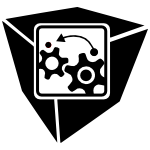401 papers:
 DATE-2015-FarkashHS #data mining #debugging #locality #mining
DATE-2015-FarkashHS #data mining #debugging #locality #mining- Data mining diagnostics and bug MRIs for HW bug localization (MF, BGH, BS), pp. 79–84.
 ITiCSE-2015-BrianTHF #debugging #student #testing
ITiCSE-2015-BrianTHF #debugging #student #testing- Planting Bugs: A System for Testing Students’ Unit Tests (SAB, RNT, JMH, CF), pp. 45–50.
 ICPC-2015-WhiteVJBP #android #debugging #generative
ICPC-2015-WhiteVJBP #android #debugging #generative- Generating reproducible and replayable bug reports from Android application crashes (MW, MLV, PJ, CBC, DP), pp. 48–59.
 ICSME-2015-BadashianHS #crowdsourcing #debugging
ICSME-2015-BadashianHS #crowdsourcing #debugging- Crowdsourced bug triaging (ASB, AH, ES), pp. 506–510.
 ICSME-2015-MondalRS #case study #comparative
ICSME-2015-MondalRS #case study #comparative- A comparative study on the bug-proneness of different types of code clones (MM, CKR, KAS), pp. 91–100.
 ICSME-2015-NucciPSBOL #debugging #developer #on the #predict
ICSME-2015-NucciPSBOL #debugging #developer #on the #predict- On the role of developer’s scattered changes in bug prediction (DDN, FP, SS, GB, RO, ADL), pp. 241–250.
 ICSME-2015-VahabzadehF0 #debugging #empirical
ICSME-2015-VahabzadehF0 #debugging #empirical- An empirical study of bugs in test code (AV, AMF, AM), pp. 101–110.
 MSR-2015-CamiloMN #case study #debugging
MSR-2015-CamiloMN #case study #debugging- Do Bugs Foreshadow Vulnerabilities? A Study of the Chromium Project (FC, AM, MN), pp. 269–279.
 MSR-2015-CoelhoAGD #android #debugging #exception #git
MSR-2015-CoelhoAGD #android #debugging #exception #git- Unveiling Exception Handling Bug Hazards in Android Based on GitHub and Google Code Issues (RC, LA, GG, AvD), pp. 134–145.
 MSR-2015-MirakhorliC #architecture #debugging
MSR-2015-MirakhorliC #architecture #debugging- Modifications, Tweaks, and Bug Fixes in Architectural Tactics (MM, JCH), pp. 377–380.
 MSR-2015-OhiraKYYMLFHIM #classification #dataset #debugging
MSR-2015-OhiraKYYMLFHIM #classification #dataset #debugging- A Dataset of High Impact Bugs: Manually-Classified Issue Reports (MO, YK, YY, HY, YM, NL, KF, HH, AI, KiM), pp. 518–521.
 MSR-2015-SahaLKP #debugging #question
MSR-2015-SahaLKP #debugging #question- Are These Bugs Really “Normal”? (RKS, JL, SK, DEP), pp. 258–268.
 SANER-2015-AggarwalRTHGS #debugging #detection #re-engineering
SANER-2015-AggarwalRTHGS #debugging #detection #re-engineering- Detecting duplicate bug reports with software engineering domain knowledge (KA, TR, FT, AH, RG, ES), pp. 211–220.
 SANER-2015-KochharTL #debugging #effectiveness #empirical #scalability #test coverage #testing
SANER-2015-KochharTL #debugging #effectiveness #empirical #scalability #test coverage #testing- Code coverage and test suite effectiveness: Empirical study with real bugs in large systems (PSK, FT, DL), pp. 560–564.
 SANER-2015-NayrollesHTL #approach #debugging #model checking #named #using
SANER-2015-NayrollesHTL #approach #debugging #model checking #named #using- JCHARMING: A bug reproduction approach using crash traces and directed model checking (MN, AHL, ST, AL), pp. 101–110.
 SANER-2015-TianL #case study #comparative #debugging #effectiveness
SANER-2015-TianL #case study #comparative #debugging #effectiveness- A comparative study on the effectiveness of part-of-speech tagging techniques on bug reports (YT, DL), pp. 570–574.
 SCAM-2015-BoisselleA #debugging #empirical
SCAM-2015-BoisselleA #debugging #empirical- The impact of cross-distribution bug duplicates, empirical study on Debian and Ubuntu (VB, BA), pp. 131–140.
 PLDI-2015-OlivoDL #debugging #detection #performance #static analysis #traversal
PLDI-2015-OlivoDL #debugging #detection #performance #static analysis #traversal- Static detection of asymptotic performance bugs in collection traversals (OO, ID, CL), pp. 369–378.
 ICEIS-v2-2015-SariK #analysis #debugging #monitoring #predict
ICEIS-v2-2015-SariK #analysis #debugging #monitoring #predict- Bug Prediction for an ATM Monitoring Software — Use of Logistic Regression Analysis for Bug Prediction (ÖS, OK), pp. 382–387.
 AMT-2015-SelimCDLO #case study #debugging #experience #model transformation #verification
AMT-2015-SelimCDLO #case study #debugging #experience #model transformation #verification- Finding and Fixing Bugs in Model Transformations with Formal Verification: An Experience Report (GMKS, JRC, JD, LL, BJO), pp. 26–35.
 OOPSLA-2015-LeSS #compilation #debugging #probability
OOPSLA-2015-LeSS #compilation #debugging #probability- Finding deep compiler bugs via guided stochastic program mutation (VL, CS, ZS), pp. 386–399.
 PPDP-2015-StievenartNMR #abstract interpretation #concurrent #debugging #detection #higher-order #source code
PPDP-2015-StievenartNMR #abstract interpretation #concurrent #debugging #detection #higher-order #source code- Detecting concurrency bugs in higher-order programs through abstract interpretation (QS, JN, WDM, CDR), pp. 232–243.
 SAC-2015-SakuraiM #debugging #object-oriented #source code
SAC-2015-SakuraiM #debugging #object-oriented #source code- The omission finder for debugging what-should-have-happened bugs in object-oriented programs (KS, HM), pp. 1962–1969.
 SAC-2015-ZhangYLC #concept #debugging #mining #predict #repository
SAC-2015-ZhangYLC #concept #debugging #mining #predict #repository- Predicting severity of bug report by mining bug repository with concept profile (TZ, GY, BL, ATSC), pp. 1553–1558.
 ESEC-FSE-2015-LeOL #debugging #information retrieval #locality
ESEC-FSE-2015-LeOL #debugging #information retrieval #locality- Information retrieval and spectrum based bug localization: better together (TDBL, RJO, DL), pp. 579–590.
 ESEC-FSE-2015-Moran #android #debugging
ESEC-FSE-2015-Moran #android #debugging- Enhancing Android application bug reporting (KM), pp. 1045–1047.
 ESEC-FSE-2015-MoranVBP #android #debugging
ESEC-FSE-2015-MoranVBP #android #debugging- Auto-completing bug reports for Android applications (KM, MLV, CBC, DP), pp. 673–686.
 ICSE-v1-2015-YuanWWLYHFLCG #concurrent #debugging #named #using
ICSE-v1-2015-YuanWWLYHFLCG #concurrent #debugging #named #using- ReCBuLC: Reproducing Concurrency Bugs Using Local Clocks (XY, CW, ZW, JL, PCY, JH, XF, YL, YC, YG), pp. 824–834.
 ICSE-v1-2015-ZhongS #debugging #empirical
ICSE-v1-2015-ZhongS #debugging #empirical- An Empirical Study on Real Bug Fixes (HZ, ZS), pp. 913–923.
 ICSE-v2-2015-CzerwonkaGT #bibliography #code review #debugging #how
ICSE-v2-2015-CzerwonkaGT #bibliography #code review #debugging #how- Code Reviews Do Not Find Bugs. How the Current Code Review Best Practice Slows Us Down (JC, MG, JT), pp. 27–28.
 ICSE-v2-2015-GomezMMR #debugging
ICSE-v2-2015-GomezMMR #debugging- When App Stores Listen to the Crowd to Fight Bugs in the Wild (MG, MM, MM, RR), pp. 567–570.
 SPLC-2015-SoutoGdMKB #debugging #detection #feature model #modelling #performance #product line
SPLC-2015-SoutoGdMKB #debugging #detection #feature model #modelling #performance #product line- Faster bug detection for software product lines with incomplete feature models (SS, DG, Md, DM, SK, DSB), pp. 151–160.
 ASPLOS-2015-HicksSKS #debugging #lightweight #named #runtime #specification
ASPLOS-2015-HicksSKS #debugging #lightweight #named #runtime #specification- SPECS: A Lightweight Runtime Mechanism for Protecting Software from Security-Critical Processor Bugs (MH, CS, STK, JMS), pp. 517–529.
 SOSP-2015-MinKLSK #correctness #debugging #file system #semantics
SOSP-2015-MinKLSK #correctness #debugging #file system #semantics- Cross-checking semantic correctness: the case of finding file system bugs (CM, SK, BL, CS, TK), pp. 361–377.
 CAV-2015-OzkanET #android #debugging
CAV-2015-OzkanET #android #debugging- Systematic Asynchrony Bug Exploration for Android Apps (BKO, ME, ST), pp. 455–461.
 ISSTA-2015-KhoshnoodKW #concurrent #constraints #debugging #named #theorem proving
ISSTA-2015-KhoshnoodKW #concurrent #constraints #debugging #named #theorem proving- ConcBugAssist: constraint solving for diagnosis and repair of concurrency bugs (SK, MK, CW), pp. 165–176.
 ASE-2014-AbalBW #analysis #debugging #kernel #linux #variability
ASE-2014-AbalBW #analysis #debugging #kernel #linux #variability- 42 variability bugs in the linux kernel: a qualitative analysis (IA, CB, AW), pp. 421–432.
 ASE-2014-Borg #debugging #re-engineering #using
ASE-2014-Borg #debugging #re-engineering #using- Embrace your issues: compassing the software engineering landscape using bug reports (MB), pp. 891–894.
 ASE-2014-KochharTL #bias #debugging #locality #matter #question
ASE-2014-KochharTL #bias #debugging #locality #matter #question- Potential biases in bug localization: do they matter? (PSK, YT, DL), pp. 803–814.
 ASE-2014-ThungKL #debugging #detection #named #tool support
ASE-2014-ThungKL #debugging #detection #named #tool support- DupFinder: integrated tool support for duplicate bug report detection (FT, PSK, DL), pp. 871–874.
 ASE-2014-WangWWYSYLFG #concurrent #debugging #locality #memory management #using
ASE-2014-WangWWYSYLFG #concurrent #debugging #locality #memory management #using- Localization of concurrency bugs using shared memory access pairs (WW, ZW, CW, PCY, XS, XY, JL, XF, YG), pp. 611–622.
 ASE-2014-ZuddasJPMO #comprehension #debugging #named
ASE-2014-ZuddasJPMO #comprehension #debugging #named- MIMIC: locating and understanding bugs by analyzing mimicked executions (DZ, WJ, FP, LM, AO), pp. 815–826.
 DAC-2014-YounGK #debugging #locality #probability #statistics
DAC-2014-YounGK #debugging #locality #probability #statistics- Probabilistic Bug Localization via Statistical Inference based on Partially Observed Data (SY, CG, JK), p. 6.
 DATE-2014-MurilloWCLA #automation #concurrent #constraints #debugging #detection
DATE-2014-MurilloWCLA #automation #concurrent #constraints #debugging #detection- Automatic detection of concurrency bugs through event ordering constraints (LGM, SW, JC, RL, GA), pp. 1–6.
 CSMR-WCRE-2014-OsmanLN #debugging #mining
CSMR-WCRE-2014-OsmanLN #debugging #mining- Mining frequent bug-fix code changes (HO, ML, ON), pp. 343–347.
 CSMR-WCRE-2014-SahaKP #debugging #empirical
CSMR-WCRE-2014-SahaKP #debugging #empirical- An empirical study of long lived bugs (RKS, SK, DEP), pp. 144–153.
 CSMR-WCRE-2014-SassoL #debugging #repository #visual notation
CSMR-WCRE-2014-SassoL #debugging #repository #visual notation- In∗bug: Visual analytics of bug repositories (TDS, ML), pp. 415–419.
 CSMR-WCRE-2014-XiaLWSZ #debugging #empirical
CSMR-WCRE-2014-XiaLWSZ #debugging #empirical- An empirical study of bug report field reassignment (XX, DL, MW, ES, BZ), pp. 174–183.
 ICPC-2014-WangL #debugging #locality #version control
ICPC-2014-WangL #debugging #locality #version control- Version history, similar report, and structure: putting them together for improved bug localization (SW, DL), pp. 53–63.
 ICPC-2014-XiaLWZW #debugging #locality
ICPC-2014-XiaLWZW #debugging #locality- Cross-language bug localization (XX, DL, XW, CZ, XW), pp. 275–278.
 ICSME-2014-HuoDMG #debugging #empirical
ICSME-2014-HuoDMG #debugging #empirical- An Empirical Study of the Effects of Expert Knowledge on Bug Reports (DH, TD, CM, MG), pp. 1–10.
 ICSME-2014-KashiwaYKO #case study #debugging
ICSME-2014-KashiwaYKO #case study #debugging- A Pilot Study of Diversity in High Impact Bugs (YK, HY, YK, MO), pp. 536–540.
 ICSME-2014-LiuQWM #concurrent #debugging #named #precise
ICSME-2014-LiuQWM #concurrent #debugging #named #precise- Pinso: Precise Isolation of Concurrency Bugs via Delta Triaging (BL, ZQ, BW, RM), pp. 201–210.
 ICSME-2014-MorenoTMS #debugging #locality #on the #stack
ICSME-2014-MorenoTMS #debugging #locality #on the #stack- On the Use of Stack Traces to Improve Text Retrieval-Based Bug Localization (LM, JJT, AM, WS), pp. 151–160.
 ICSME-2014-SahaLKP #c #debugging #effectiveness #information retrieval #locality #on the #source code
ICSME-2014-SahaLKP #c #debugging #effectiveness #information retrieval #locality #on the #source code- On the Effectiveness of Information Retrieval Based Bug Localization for C Programs (RKS, JL, SK, DEP), pp. 161–170.
 ICSME-2014-WangLL #composition #debugging #locality #modelling
ICSME-2014-WangLL #composition #debugging #locality #modelling- Compositional Vector Space Models for Improved Bug Localization (SW, DL, JL), pp. 171–180.
 ICSME-2014-WongXZHZM #analysis #fault #locality #segmentation
ICSME-2014-WongXZHZM #analysis #fault #locality #segmentation- Boosting Bug-Report-Oriented Fault Localization with Segmentation and Stack-Trace Analysis (CPW, YX, HZ, DH, LZ, HM), pp. 181–190.
 ICSME-2014-YeasminRS #debugging #evolution #interactive #summary #topic #using #visualisation
ICSME-2014-YeasminRS #debugging #evolution #interactive #summary #topic #using #visualisation- Interactive Visualization of Bug Reports Using Topic Evolution and Extractive Summaries (SY, CKR, KAS), pp. 421–425.
 ICSME-2014-ZhouTGG #classification #data mining #debugging #mining
ICSME-2014-ZhouTGG #classification #data mining #debugging #mining- Combining Text Mining and Data Mining for Bug Report Classification (YZ, YT, RG, HCG), pp. 311–320.
 MSR-2014-ChenNSH #debugging #empirical
MSR-2014-ChenNSH #debugging #empirical- An empirical study of dormant bugs (THC, MN, ES, AEH), pp. 82–91.
 MSR-2014-GarciaS #debugging #open source #predict
MSR-2014-GarciaS #debugging #open source #predict- Characterizing and predicting blocking bugs in open source projects (HVG, ES), pp. 72–81.
 MSR-2014-JoorabchiMM #debugging #exclamation
MSR-2014-JoorabchiMM #debugging #exclamation- Works for me! characterizing non-reproducible bug reports (MEJ, MM, AM), pp. 62–71.
 MSR-2014-KleinCK #debugging #detection
MSR-2014-KleinCK #debugging #detection- New features for duplicate bug detection (NK, CSC, NAK), pp. 324–327.
 MSR-2014-KochharLL #classification #debugging #locality #question
MSR-2014-KochharLL #classification #debugging #locality #question- It’s not a bug, it’s a feature: does misclassification affect bug localization? (PSK, TDBL, DL), pp. 296–299.
 MSR-2014-LazarRS #debugging #detection #metric #similarity #using
MSR-2014-LazarRS #debugging #detection #metric #similarity #using- Improving the accuracy of duplicate bug report detection using textual similarity measures (AL, SR, BS), pp. 308–311.
 MSR-2014-LazarRS14a #dataset #debugging #generative
MSR-2014-LazarRS14a #dataset #debugging #generative- Generating duplicate bug datasets (AL, SR, BS), pp. 392–395.
 MSR-2014-MitropoulosKLGS #debugging #ecosystem
MSR-2014-MitropoulosKLGS #debugging #ecosystem- The bug catalog of the maven ecosystem (DM, VK, PL, GG, DS), pp. 372–375.
 MSR-2014-SainiSOL #dataset #debugging
MSR-2014-SainiSOL #dataset #debugging- A dataset for maven artifacts and bug patterns found in them (VS, HS, JO, CVL), pp. 416–419.
 SCAM-2014-AnKA #debugging
SCAM-2014-AnKA #debugging- Supplementary Bug Fixes vs. Re-opened Bugs (LA, FK, BA), pp. 205–214.
 SCAM-2014-BazrafshanK #debugging #developer #performance
SCAM-2014-BazrafshanK #debugging #developer #performance- Effect of Clone Information on the Performance of Developers Fixing Cloned Bugs (SB, RK), pp. 1–10.
 SCAM-2014-SajnaniSL #case study #comparative #debugging #java
SCAM-2014-SajnaniSL #case study #comparative #debugging #java- A Comparative Study of Bug Patterns in Java Cloned and Non-cloned Code (HS, VS, CVL), pp. 21–30.
 CHI-2014-RyokaiSKR #energy #named #smarttech
CHI-2014-RyokaiSKR #energy #named #smarttech- EnergyBugs: energy harvesting wearables for children (KR, PS, EK, BR), pp. 1039–1048.
 SEKE-2014-YangWSFC #analysis #debugging #fault
SEKE-2014-YangWSFC #analysis #debugging #fault- Bug Inducing Analysis to Prevent Fault Prone Bug Fixes (HY, CW, QS, YF, ZC), pp. 620–625.
 SAC-2014-PotocnikCS #debugging #named #problem #scala
SAC-2014-PotocnikCS #debugging #named #problem #scala- Linter: a tool for finding bugs and potential problems in scala code (MP, UC, BS), pp. 1615–1616.
 SAC-2014-YangZL #algorithm #debugging #developer #effectiveness #multi #recommendation
SAC-2014-YangZL #algorithm #debugging #developer #effectiveness #multi #recommendation- Utilizing a multi-developer network-based developer recommendation algorithm to fix bugs effectively (GY, TZ, BL), pp. 1134–1139.
 SAC-2014-ZhaoXKLL #debugging #empirical #process
SAC-2014-ZhaoXKLL #debugging #empirical #process- An empirical study of bugs in build process (XZ, XX, PSK, DL, SL), pp. 1187–1189.
 FSE-2014-0010TZ #concurrent #debugging #named
FSE-2014-0010TZ #concurrent #debugging #named- Grail: context-aware fixing of concurrency bugs (PL, OT, CZ), pp. 318–329.
 FSE-2014-BanerjeeC0R #debugging #detection #energy #mobile
FSE-2014-BanerjeeC0R #debugging #detection #energy #mobile- Detecting energy bugs and hotspots in mobile apps (AB, LKC, SC, AR), pp. 588–598.
 FSE-2014-ThungLKL #debugging #locality #named #tool support
FSE-2014-ThungLKL #debugging #locality #named #tool support- BugLocalizer: integrated tool support for bug localization (FT, TDBL, PSK, DL), pp. 767–770.
 FSE-2014-Xiao #architecture #debugging #detection
FSE-2014-Xiao #architecture #debugging #detection- Detecting and preventing the architectural roots of bugs (LX), pp. 811–813.
 FSE-2014-YeBL #debugging #learning #rank #using
FSE-2014-YeBL #debugging #learning #rank #using- Learning to rank relevant files for bug reports using domain knowledge (XY, RCB, CL), pp. 689–699.
 FSE-2014-ZhangWLQRZ #concurrent #debugging #lightweight #named
FSE-2014-ZhangWLQRZ #concurrent #debugging #lightweight #named- AI: a lightweight system for tolerating concurrency bugs (MZ, YW, SL, SQ, JR, WZ), pp. 330–340.
 ICSE-2014-LiuXC #debugging #detection #performance #smarttech
ICSE-2014-LiuXC #debugging #detection #performance #smarttech- Characterizing and detecting performance bugs for smartphone applications (YL, CX, SCC), pp. 1013–1024.
 ICSE-2014-RahmanKBD #debugging #predict #statistics
ICSE-2014-RahmanKBD #debugging #predict #statistics- Comparing static bug finders and statistical prediction (FR, SK, ETB, PTD), pp. 424–434.
 OSDI-2014-0001RB #concurrent #debugging #kernel #named
OSDI-2014-0001RB #concurrent #debugging #kernel #named- SKI: Exposing Kernel Concurrency Bugs through Systematic Schedule Exploration (PF, RR, BBB), pp. 415–431.
 OSDI-2014-LeesatapornwongsaHJLG #debugging #model checking #named #performance #semantics
OSDI-2014-LeesatapornwongsaHJLG #debugging #model checking #named #performance #semantics- SAMC: Semantic-Aware Model Checking for Fast Discovery of Deep Bugs in Cloud Systems (TL, MH, PJ, JFL, HSG), pp. 399–414.
 PPoPP-2014-WangWYYWL0 #concurrent #debugging #locality #memory management #using
PPoPP-2014-WangWYYWL0 #concurrent #debugging #locality #memory management #using- Concurrency bug localization using shared memory access pairs (WW, CW, PCY, XY, ZW, JL, XF), pp. 375–376.
 ICST-2014-VarvaressosLMGH #automation #case study #debugging #game studies #monitoring #runtime #video
ICST-2014-VarvaressosLMGH #automation #case study #debugging #game studies #monitoring #runtime #video- Automated Bug Finding in Video Games: A Case Study for Runtime Monitoring (SV, KL, ABM, SG, SH), pp. 143–152.
 ISSTA-2014-XuZXW #c #named #source code
ISSTA-2014-XuZXW #c #named #source code- Canalyze: a static bug-finding tool for C programs (ZX, JZ, ZX, JW), pp. 425–428.
 ISSTA-2014-ZuoKS #debugging #mining #performance
ISSTA-2014-ZuoKS #debugging #mining #performance- Efficient predicated bug signature mining via hierarchical instrumentation (ZZ, SCK, CS), pp. 215–224.
 ASE-2013-SagdeoEPV #automation #debugging #invariant #locality #testing #using
ASE-2013-SagdeoEPV #automation #debugging #invariant #locality #testing #using- Using automatically generated invariants for regression testing and bug localization (PS, NE, DP, SV), pp. 634–639.
 ASE-2013-SahaLKP #debugging #information retrieval #locality #using
ASE-2013-SahaLKP #debugging #information retrieval #locality #using- Improving bug localization using structured information retrieval (RKS, ML, SK, DEP), pp. 345–355.
 ASE-2013-Servant #analysis #debugging #using
ASE-2013-Servant #analysis #debugging #using- Supporting bug investigation using history analysis (FS), pp. 754–757.
 DATE-2013-DeOrioLBB #debugging #detection #machine learning
DATE-2013-DeOrioLBB #debugging #detection #machine learning- Machine learning-based anomaly detection for post-silicon bug diagnosis (AD, QL, MB, VB), pp. 491–496.
 CSMR-2013-BhattacharyaUNK #analysis #android #debugging #empirical #open source
CSMR-2013-BhattacharyaUNK #analysis #android #debugging #empirical #open source- An Empirical Analysis of Bug Reports and Bug Fixing in Open Source Android Apps (PB, LU, IN, SCK), pp. 133–143.
 CSMR-2013-BissyandeTWLJR #debugging #empirical #evaluation
CSMR-2013-BissyandeTWLJR #debugging #empirical #evaluation- Empirical Evaluation of Bug Linking (TFB, FT, SW, DL, LJ, LR), pp. 89–98.
 CSMR-2013-LamkanfiD #debugging #predict
CSMR-2013-LamkanfiD #debugging #predict- Predicting Reassignments of Bug Reports — An Exploratory Investigation (AL, SD), pp. 327–330.
 CSMR-2013-LerchM #debugging
CSMR-2013-LerchM #debugging- Finding Duplicates of Your Yet Unwritten Bug Report (JL, MM), pp. 69–78.
 CSMR-2013-XiaLWYLS #algorithm #case study #comparative #debugging #learning #predict
CSMR-2013-XiaLWYLS #algorithm #case study #comparative #debugging #learning #predict- A Comparative Study of Supervised Learning Algorithms for Re-opened Bug Prediction (XX, DL, XW, XY, SL, JS), pp. 331–334.
 ICSM-2013-EbertC #case study #debugging #developer #exception
ICSM-2013-EbertC #case study #debugging #developer #exception- A Study on Developers’ Perceptions about Exception Handling Bugs (FE, FC), pp. 448–451.
 ICSM-2013-FrancisW #debugging #policy
ICSM-2013-FrancisW #debugging #policy- Determining “Grim Reaper” Policies to Prevent Languishing Bugs (PF, LW), pp. 436–439.
 ICSM-2013-MorenoBHM #debugging #on the #source code
ICSM-2013-MorenoBHM #debugging #on the #source code- On the Relationship between the Vocabulary of Bug Reports and Source Code (LM, WB, SH, AM), pp. 452–455.
 ICSM-2013-TabaKZHN #debugging #predict #using
ICSM-2013-TabaKZHN #debugging #predict #using- Predicting Bugs Using Antipatterns (SEST, FK, YZ, AEH, MN), pp. 270–279.
 ICSM-2013-TianLS #analysis #debugging #multi #named #predict
ICSM-2013-TianLS #analysis #debugging #multi #named #predict- DRONE: Predicting Priority of Reported Bugs by Multi-factor Analysis (YT, DL, CS), pp. 200–209.
 MSR-2013-AlipourHS #approach #debugging #detection #towards
MSR-2013-AlipourHS #approach #debugging #detection #towards- A contextual approach towards more accurate duplicate bug report detection (AA, AH, ES), pp. 183–192.
 MSR-2013-LamkanfiPD #dataset #debugging #eclipse #fault #mining
MSR-2013-LamkanfiPD #dataset #debugging #eclipse #fault #mining- The eclipse and mozilla defect tracking dataset: a genuine dataset for mining bug information (AL, JP, SD), pp. 203–206.
 MSR-2013-ManiNMNSN #debugging #identification #repository
MSR-2013-ManiNMNSN #debugging #identification #repository- Bug resolution catalysts: identifying essential non-committers from bug repositories (SM, SN, DM, RN, VSS, AAN), pp. 193–202.
 MSR-2013-NaguibNBH #debugging #process #recommendation #using
MSR-2013-NaguibNBH #debugging #process #recommendation #using- Bug report assignee recommendation using activity profiles (HN, NN, BB, DH), pp. 22–30.
 MSR-2013-NistorJT #debugging #performance
MSR-2013-NistorJT #debugging #performance- Discovering, reporting, and fixing performance bugs (AN, TJ, LT), pp. 237–246.
 MSR-2013-ShokripourAKZ #debugging #recommendation #why
MSR-2013-ShokripourAKZ #debugging #recommendation #why- Why so complicated? simple term filtering and weighting for location-based bug report assignment recommendation (RS, JA, ZMK, SZ), pp. 2–11.
 MSR-2013-SismanK #automation #code search #debugging #locality #query
MSR-2013-SismanK #automation #code search #debugging #locality #query- Assisting code search with automatic query reformulation for bug localization (BS, ACK), pp. 309–318.
 MSR-2013-WangKZ #correlation #debugging #locality #using
MSR-2013-WangKZ #correlation #debugging #locality #using- Improving bug localization using correlations in crash reports (SW, FK, YZ), pp. 247–256.
 PASTE-2013-ModiRA #debugging #locality #statistics
PASTE-2013-ModiRA #debugging #locality #statistics- Exploring program phases for statistical bug localization (VM, SR, SKA), pp. 33–40.
 WCRE-2013-LiuTZ #debugging #question
WCRE-2013-LiuTZ #debugging #question- Has this bug been reported? (KL, HBKT, HZ), pp. 82–91.
 WCRE-2013-RaoMK #debugging #framework #incremental #library #locality #performance #retrieval
WCRE-2013-RaoMK #debugging #framework #incremental #library #locality #performance #retrieval- An incremental update framework for efficient retrieval from software libraries for bug localization (SR, HM, ACK), pp. 62–71.
 WCRE-2013-ThungLJ #automation
WCRE-2013-ThungLJ #automation- Automatic recovery of root causes from bug-fixing changes (FT, DL, LJ), pp. 92–101.
 WCRE-2013-XiaLWZ #debugging #developer #recommendation
WCRE-2013-XiaLWZ #debugging #developer #recommendation- Accurate developer recommendation for bug resolution (XX, DL, XW, BZ), pp. 72–81.
 PLDI-2013-ElmasBNS #concurrent #debugging #domain-specific language #named
PLDI-2013-ElmasBNS #concurrent #debugging #domain-specific language #named- CONCURRIT: a domain specific language for reproducing concurrency bugs (TE, JB, GCN, KS), pp. 153–164.
 VISSOFT-2013-SassoL #debugging
VISSOFT-2013-SassoL #debugging- A closer look at bugs (TDS, ML), pp. 1–4.
 SEKE-2013-LiLJJ #communication #comprehension #concurrent #debugging #graph
SEKE-2013-LiLJJ #communication #comprehension #concurrent #debugging #graph- Locating and Understanding Concurrency Bugs Based on Edge-labeled Communication Graphs (S) (HL, ML, TJ, ZJ), pp. 525–530.
 SEKE-2013-YuanYL #debugging #fine-grained #predict #source code
SEKE-2013-YuanYL #debugging #fine-grained #predict #source code- Bug Prediction for Fine-Grained Source Code Changes (ZY, LY, CL), pp. 381–387.
 SEKE-2013-ZhangLK #debugging #on the #statistics
SEKE-2013-ZhangLK #debugging #on the #statistics- On the Use of Bug and Predicate Signatures for Statistical Debugging (YZ, EL, BK), pp. 249–299.
 ECOOP-2013-HaoLZG0 #debugging #question
ECOOP-2013-HaoLZG0 #debugging #question- Is This a Bug or an Obsolete Test? (DH, TL, HZ, CG, LZ), pp. 602–628.
 OOPSLA-2013-Deng0L #detection #performance
OOPSLA-2013-Deng0L #detection #performance- Efficient concurrency-bug detection across inputs (DD, WZ, SL), pp. 785–802.
 RE-2013-WangLWYZL #debugging #dependence #integration #network #question #requirements
RE-2013-WangLWYZL #debugging #dependence #integration #network #question #requirements- Can requirements dependency network be used as early indicator of software integration bugs? (JW, JL, QW, DY, HZ, ML), pp. 185–194.
 SAC-PL-J-2010-PopeeaC13 #analysis #debugging #proving #safety
SAC-PL-J-2010-PopeeaC13 #analysis #debugging #proving #safety- Dual analysis for proving safety and finding bugs (CP, WNC), pp. 390–411.
 SAC-2013-ZhangL #algorithm #debugging #developer #hybrid #recommendation
SAC-2013-ZhangL #algorithm #debugging #developer #hybrid #recommendation- A hybrid bug triage algorithm for developer recommendation (TZ, BL), pp. 1088–1094.
 ESEC-FSE-2013-GongZ #debugging #named
ESEC-FSE-2013-GongZ #debugging #named- BugMap: a topographic map of bugs (JG, HZ), pp. 647–650.
 ESEC-FSE-2013-LiangWXM #debugging #detection
ESEC-FSE-2013-LiangWXM #debugging #detection- Inferring project-specific bug patterns for detecting sibling bugs (GL, QW, TX, HM), pp. 565–575.
 ESEC-FSE-2013-McPeakGR #debugging #detection #incremental #scalability
ESEC-FSE-2013-McPeakGR #debugging #detection #incremental #scalability- Scalable and incremental software bug detection (SM, CHG, MKR), pp. 554–564.
 ESEC-FSE-2013-SunK #debugging #mining
ESEC-FSE-2013-SunK #debugging #mining- Mining succinct predicated bug signatures (CS, SCK), pp. 576–586.
 ICSE-2013-BortisH #approach #debugging #named
ICSE-2013-BortisH #approach #debugging #named- PorchLight: a tag-based approach to bug triaging (GB, AvdH), pp. 342–351.
 ICSE-2013-HerzigJZ #classification #debugging #how #predict
ICSE-2013-HerzigJZ #classification #debugging #how #predict- It’s not a bug, it’s a feature: how misclassification impacts bug prediction (KH, SJ, AZ), pp. 392–401.
 ICSE-2013-JohnsonSMB #debugging #developer #question #static analysis #tool support #why
ICSE-2013-JohnsonSMB #debugging #developer #question #static analysis #tool support #why- Why don’t software developers use static analysis tools to find bugs? (BJ, YS, ERMH, RWB), pp. 672–681.
 ICSE-2013-LewisLSZOW #case study #debugging #developer #predict
ICSE-2013-LewisLSZOW #case study #debugging #developer #predict- Does bug prediction support human developers? findings from a google case study (CL, ZL, CS, XZ, RO, EJWJ), pp. 372–381.
 ICSE-2013-Murphy-HillZBN #debugging #design
ICSE-2013-Murphy-HillZBN #debugging #design- The design of bug fixes (ERMH, TZ, CB, NN), pp. 332–341.
 ICSE-2013-ZanettiSTS #case study #categorisation #community #debugging #network #open source #social
ICSE-2013-ZanettiSTS #case study #categorisation #community #debugging #network #open source #social- Categorizing bugs with social networks: a case study on four open source software communities (MSZ, IS, CJT, FS), pp. 1032–1041.
 ICSE-2013-ZhangGV #empirical #predict
ICSE-2013-ZhangGV #empirical #predict- Predicting bug-fixing time: an empirical study of commercial software projects (HZ, LG, SV), pp. 1042–1051.
 ASPLOS-2013-ZhangKLLS #concurrent #debugging #execution #named #thread
ASPLOS-2013-ZhangKLLS #concurrent #debugging #execution #named #thread- ConAir: featherweight concurrency bug recovery via single-threaded idempotent execution (WZ, MdK, AL, SL, KS), pp. 113–126.
 CGO-2013-ArthurMRAB #debugging #named #profiling #scalability #security
CGO-2013-ArthurMRAB #debugging #named #profiling #scalability #security- Schnauzer: scalable profiling for likely security bug sites (WA, BM, RR, TMA, VB), p. 11.
 HPDC-2013-ZhouTKB #automation #debugging #detection #named #scalability
HPDC-2013-ZhouTKB #automation #debugging #detection #named #scalability- WuKong: automatically detecting and localizing bugs that manifest at large system scales (BZ, JT, MK, SB), pp. 131–142.
 PPoPP-2013-ZhouKB #debugging #effectiveness #named #scalability
PPoPP-2013-ZhouKB #debugging #effectiveness #named #scalability- WuKong: effective diagnosis of bugs at large system scales (BZ, MK, SB), pp. 317–318.
 ICST-2013-LiuYTH #automation #debugging #generative #named
ICST-2013-LiuYTH #automation #debugging #generative #named- R2Fix: Automatically Generating Bug Fixes from Bug Reports (CL, JY, LT, MH), pp. 282–291.
 ISSTA-2013-Park #concurrent #debugging
ISSTA-2013-Park #concurrent #debugging- Debugging non-deadlock concurrency bugs (SP), pp. 358–361.
 ISSTA-2013-ParkHV #comprehension #concurrent #data access #debugging #named
ISSTA-2013-ParkHV #comprehension #concurrent #data access #debugging #named- Griffin: grouping suspicious memory-access patterns to improve understanding of concurrency bugs (SP, MJH, RWV), pp. 134–144.
 VMCAI-2013-SlabyST #classification #database #named
VMCAI-2013-SlabyST #classification #database #named- ClabureDB: Classified Bug-Reports Database (JS, JS, MT), pp. 268–274.
 ASE-2012-NguyenNNLS #debugging #detection #information retrieval #modelling #topic
ASE-2012-NguyenNNLS #debugging #detection #information retrieval #modelling #topic- Duplicate bug report detection with a combination of information retrieval and topic modeling (ATN, TTN, TNN, DL, CS), pp. 70–79.
 ASE-2012-ThungLLJRD #debugging #detection #empirical #fault #tool support #what
ASE-2012-ThungLLJRD #debugging #detection #empirical #fault #tool support #what- To what extent could we detect field defects? an empirical study of false negatives in static bug finding tools (FT, L, DL, LJ, FR, PTD), pp. 50–59.
 DAC-2012-LinHFHM #debugging #detection #effectiveness #validation
DAC-2012-LinHFHM #debugging #detection #effectiveness #validation- Quick detection of difficult bugs for effective post-silicon validation (DL, TH, FF, NH, SM), pp. 561–566.
 TACAS-2012-WeissenbacherKM #contest #debugging #named
TACAS-2012-WeissenbacherKM #contest #debugging #named- Wolverine: Battling Bugs with Interpolants — (Competition Contribution) (GW, DK, SM), pp. 556–558.
 CSMR-2012-BernardiCLPD #communication #debugging #developer #eclipse
CSMR-2012-BernardiCLPD #communication #debugging #developer #eclipse- Do Developers Introduce Bugs When They Do Not Communicate? The Case of Eclipse and Mozilla (MLB, GC, GADL, MDP, DD), pp. 139–148.
 CSMR-2012-CoutoSVBA #debugging #metric
CSMR-2012-CoutoSVBA #debugging #metric- Uncovering Causal Relationships between Software Metrics and Bugs (CC, CS, MTV, RdSB, NA), pp. 223–232.
 CSMR-2012-Gall #debugging #smell
CSMR-2012-Gall #debugging #smell- Keynote 1: LGTM — Software Sensing and Bug Smelling (HCG), pp. 3–4.
 CSMR-2012-HoraADBCVM #analysis #debugging #visual notation
CSMR-2012-HoraADBCVM #analysis #debugging #visual notation- Bug Maps: A Tool for the Visual Exploration and Analysis of Bugs (AH, NA, SD, MUB, CC, MTV, JM), pp. 523–526.
 CSMR-2012-HosseiniNG #debugging #predict #using
CSMR-2012-HosseiniNG #debugging #predict #using- A Market-Based Bug Allocation Mechanism Using Predictive Bug Lifetimes (HH, RN, MWG), pp. 149–158.
 CSMR-2012-Izquierdo-Cortazar #comprehension #debugging #distributed #process
CSMR-2012-Izquierdo-Cortazar #comprehension #debugging #distributed #process- Global and Geographically Distributed Work Teams: Understanding the Bug Fixing Process and Potentially Bug-prone Activity Patterns (DIC), pp. 505–508.
 CSMR-2012-KaushikT #case study #comparative #debugging #detection #information retrieval #modelling #performance
CSMR-2012-KaushikT #case study #comparative #debugging #detection #information retrieval #modelling #performance- A Comparative Study of the Performance of IR Models on Duplicate Bug Detection (NK, LT), pp. 159–168.
 CSMR-2012-LamkanfiD #analysis #debugging
CSMR-2012-LamkanfiD #analysis #debugging- Filtering Bug Reports for Fix-Time Analysis (AL, SD), pp. 379–384.
 CSMR-2012-TianSL #debugging #identification
CSMR-2012-TianSL #debugging #identification- Improved Duplicate Bug Report Identification (YT, CS, DL), pp. 385–390.
 ICSM-2012-Linares-VasquezHDKGP #commit #debugging #question
ICSM-2012-Linares-VasquezHDKGP #commit #debugging #question- Triaging incoming change requests: Bug or commit history, or code authorship? (MLV, KH, HD, HHK, MG, DP), pp. 451–460.
 ICSM-2012-LotufoMC #debugging #modelling #process
ICSM-2012-LotufoMC #debugging #modelling #process- Modelling the “Hurried” bug report reading process to summarize bug reports (RL, ZM, KC), pp. 430–439.
 ICSM-2012-OhiraHOM #case study #debugging #eclipse
ICSM-2012-OhiraHOM #case study #debugging #eclipse- The impact of bug management patterns on bug fixing: A case study of Eclipse projects (MO, AEH, NO, KiM), pp. 264–273.
 ICSM-2012-ThungLJLRD #debugging #question
ICSM-2012-ThungLJLRD #debugging #question- When would this bug get reported? (FT, DL, LJ, L, FR, PTD), pp. 420–429.
 MSR-2012-AsaduzzamanBRS #android #case study #debugging
MSR-2012-AsaduzzamanBRS #android #case study #debugging- Bug introducing changes: A case study with Android (MA, MCB, CKR, KAS), pp. 116–119.
 MSR-2012-Breckel #comparison #database #debugging #detection #fault #mining #scalability
MSR-2012-Breckel #comparison #database #debugging #detection #fault #mining #scalability- Error mining: Bug detection through comparison with large code databases (AB), pp. 175–178.
 MSR-2012-LotufoPC #debugging #game studies #towards
MSR-2012-LotufoPC #debugging #game studies #towards- Towards improving bug tracking systems with game mechanisms (RL, LTP, KC), pp. 2–11.
 MSR-2012-MartiePSL #android #debugging #roadmap #topic
MSR-2012-MartiePSL #android #debugging #roadmap #topic- Trendy bugs: Topic trends in the Android bug reports (LM, VKP, HS, CVL), pp. 120–123.
 MSR-2012-ParkKRB #debugging #empirical
MSR-2012-ParkKRB #debugging #empirical- An empirical study of supplementary bug fixes (JP, MK, BR, DHB), pp. 40–49.
 MSR-2012-SismanK #debugging #information retrieval #locality #version control
MSR-2012-SismanK #debugging #information retrieval #locality #version control- Incorporating version histories in Information Retrieval based bug localization (BS, ACK), pp. 50–59.
 MSR-2012-SouzaC #debugging #ide #open source #verification
MSR-2012-SouzaC #debugging #ide #open source #verification- Characterizing verification of bug fixes in two open source IDEs (RS, CC), pp. 70–73.
 MSR-2012-ZamanAH #debugging #performance
MSR-2012-ZamanAH #debugging #performance- A qualitative study on performance bugs (SZ, BA, AEH), pp. 199–208.
 SCAM-2012-AliSGA #debugging #using
SCAM-2012-AliSGA #debugging #using- Improving Bug Location Using Binary Class Relationships (NA, AS, YGG, GA), pp. 174–183.
 SCAM-2012-BavotaCLPOS #debugging #empirical #refactoring
SCAM-2012-BavotaCLPOS #debugging #empirical #refactoring- When Does a Refactoring Induce Bugs? An Empirical Study (GB, BDC, ADL, MDP, RO, OS), pp. 104–113.
 SCAM-2012-HillRK #debugging #java #locality #on the
SCAM-2012-HillRK #debugging #java #locality #on the- On the Use of Stemming for Concern Location and Bug Localization in Java (EH, SR, ACK), pp. 184–193.
 WCRE-2012-DaviesRW #debugging #locality #similarity #using
WCRE-2012-DaviesRW #debugging #locality #similarity #using- Using Bug Report Similarity to Enhance Bug Localisation (SD, MR, MW), pp. 125–134.
 WCRE-2012-HanZFHWS #analysis #android #comprehension #debugging #topic
WCRE-2012-HanZFHWS #analysis #android #comprehension #debugging #topic- Understanding Android Fragmentation with Topic Analysis of Vendor-Specific Bugs (DH, CZ, XF, AH, KW, ES), pp. 83–92.
 WCRE-2012-TianLS #classification #debugging #fine-grained #information retrieval #nearest neighbour #predict
WCRE-2012-TianLS #classification #debugging #fine-grained #information retrieval #nearest neighbour #predict- Information Retrieval Based Nearest Neighbor Classification for Fine-Grained Bug Severity Prediction (YT, DL, CS), pp. 215–224.
 WCRE-2012-ZhangKZH #debugging #empirical
WCRE-2012-ZhangKZH #debugging #empirical- An Empirical Study on Factors Impacting Bug Fixing Time (FZ, FK, YZ, AEH), pp. 225–234.
 PEPM-2012-KarlsenHO #debugging #eclipse #java #plugin
PEPM-2012-KarlsenHO #debugging #eclipse #java #plugin- Finding and fixing Java naming bugs with the lancelot eclipse plugin (EKK, EWH, BMØ), pp. 35–38.
 PLDI-2012-JinSSSL #comprehension #debugging #detection #performance
PLDI-2012-JinSSSL #comprehension #debugging #detection #performance- Understanding and detecting real-world performance bugs (GJ, LS, XS, JS, SL), pp. 77–88.
 PLDI-2012-NagarakatteBMM #concurrent #debugging #detection #manycore
PLDI-2012-NagarakatteBMM #concurrent #debugging #detection #manycore- Multicore acceleration of priority-based schedulers for concurrency bug detection (SN, SB, MMKM, MM), pp. 543–554.
 PLDI-2012-RegehrCCEEY #c #compilation #debugging #reduction #testing
PLDI-2012-RegehrCCEEY #c #compilation #debugging #reduction #testing- Test-case reduction for C compiler bugs (JR, YC, PC, EE, CE, XY), pp. 335–346.
 IFM-2012-RochaBCN #bound #comprehension #debugging #model checking #programming #using
IFM-2012-RochaBCN #bound #comprehension #debugging #model checking #programming #using- Understanding Programming Bugs in ANSI-C Software Using Bounded Model Checking Counter-Examples (HR, RSB, LCC, ADN), pp. 128–142.
 CIKM-2012-ZhouZ #debugging #learning #rank
CIKM-2012-ZhouZ #debugging #learning #rank- Learning to rank duplicate bug reports (JZ, HZ), pp. 852–861.
 OOPSLA-2012-GuBSS #debugging #reuse
OOPSLA-2012-GuBSS #debugging #reuse- Reusing debugging knowledge via trace-based bug search (ZG, ETB, DS, ZS), pp. 927–942.
 OOPSLA-2012-HuangZ #agile #concurrent #debugging #execution #named #reduction
OOPSLA-2012-HuangZ #agile #concurrent #debugging #execution #named #reduction- LEAN: simplifying concurrency bug reproduction via replay-supported execution reduction (JH, CZ), pp. 451–466.
 TOOLS-EUROPE-2012-Sureka #component #debugging #learning
TOOLS-EUROPE-2012-Sureka #component #debugging #learning- Learning to Classify Bug Reports into Components (AS), pp. 288–303.
 POPL-2012-JoshiLL #debugging
POPL-2012-JoshiLL #debugging- Underspecified harnesses and interleaved bugs (SJ, SKL, AL), pp. 19–30.
 FSE-2012-LiuTC #debugging #question
FSE-2012-LiuTC #debugging #question- Has this bug been reported? (KL, HBKT, MC), p. 28.
 FSE-2012-ManiCSD #approach #debugging #named #summary
FSE-2012-ManiCSD #approach #debugging #named #summary- AUSUM: approach for unsupervised bug report summarization (SM, RC, VSS, AD), p. 11.
 FSE-2012-NguyenNNN #approach #debugging #multi
FSE-2012-NguyenNNN #approach #debugging #multi- Multi-layered approach for recovering links between bug reports and fixes (ATN, TTN, HAN, TNN), p. 63.
 ICSE-2012-GouesDFW #automation #debugging #program repair
ICSE-2012-GouesDFW #automation #debugging #program repair- A systematic study of automated program repair: Fixing 55 out of 105 bugs for $8 each (CLG, MDV, SF, WW), pp. 3–13.
 ICSE-2012-HataMK #debugging #fine-grained #predict
ICSE-2012-HataMK #debugging #fine-grained #predict- Bug prediction based on fine-grained module histories (HH, OM, TK), pp. 200–210.
 ICSE-2012-JinO #debugging #named
ICSE-2012-JinO #debugging #named- BugRedux: Reproducing field failures for in-house debugging (WJ, AO), pp. 474–484.
 ICSE-2012-PradelG #automation #debugging #detection #generative #mining #specification #testing
ICSE-2012-PradelG #automation #debugging #detection #generative #mining #specification #testing- Leveraging test generation and specification mining for automated bug detection without false positives (MP, TRG), pp. 288–298.
 ICSE-2012-SongT12a #debugging #detection #metadata #on the fly
ICSE-2012-SongT12a #debugging #detection #metadata #on the fly- Detecting metadata bugs on the fly (MS, ET), pp. 1455–1456.
 ICSE-2012-TianLL #debugging #identification #linux
ICSE-2012-TianLL #debugging #identification #linux- Identifying Linux bug fixing patches (YT, JLL, DL), pp. 386–396.
 ICSE-2012-XuanJRZ #debugging #developer #repository
ICSE-2012-XuanJRZ #debugging #developer #repository- Developer prioritization in bug repositories (JX, HJ, ZR, WZ), pp. 25–35.
 ICSE-2012-ZhangLY #debugging #framework
ICSE-2012-ZhangLY #debugging #framework- An integrated bug processing framework (XZ, ML, KY), pp. 1469–1470.
 ICSE-2012-ZhouZL #debugging #information retrieval #locality
ICSE-2012-ZhouZL #debugging #information retrieval #locality- Where should the bugs be fixed? More accurate information retrieval-based bug localization based on bug reports (JZ, HZ, DL), pp. 14–24.
 ICSE-2012-ZimmermannNGM #debugging #predict
ICSE-2012-ZimmermannNGM #debugging #predict- Characterizing and predicting which bugs get reopened (TZ, NN, PJG, BM), pp. 1074–1083.
 SPLC-2012-OliveiraBN #analysis #debugging #product line
SPLC-2012-OliveiraBN #analysis #debugging #product line- Supporting the analysis of bug prevalence in software product lines with product genealogy (THBdO, MB, EYN), pp. 181–185.
 ASPLOS-2012-KasikciZC #debugging #difference
ASPLOS-2012-KasikciZC #debugging #difference- Data races vs. data race bugs: telling the difference with portend (BK, CZ, GC), pp. 185–198.
 ASPLOS-2012-VolosTSL #concurrent #debugging #memory management #transaction
ASPLOS-2012-VolosTSL #concurrent #debugging #memory management #transaction- Applying transactional memory to concurrency bugs (HV, AJT, MMS, SL), pp. 211–222.
 OSDI-2012-Jin0D #automation
OSDI-2012-Jin0D #automation- Automated Concurrency-Bug Fixing (GJ, WZ, DD), pp. 221–236.
 ICST-2012-ParkVH #approach #concurrent #debugging
ICST-2012-ParkVH #approach #concurrent #debugging- A Unified Approach for Localizing Non-deadlock Concurrency Bugs (SP, RWV, MJH), pp. 51–60.
 ISSTA-2012-LiRCS #debugging #detection #precise #predict
ISSTA-2012-LiRCS #debugging #detection #precise #predict- Residual investigation: predictive and precise bug detection (KL, CR, CC, YS), pp. 298–308.
 ASE-2011-NguyenNANN #approach #debugging #topic
ASE-2011-NguyenNANN #approach #debugging #topic- A topic-based approach for narrowing the search space of buggy files from a bug report (ATN, TTN, JMAK, HVN, TNN), pp. 263–272.
 ASE-2011-SunLKJ #debugging #retrieval #towards
ASE-2011-SunLKJ #debugging #retrieval #towards- Towards more accurate retrieval of duplicate bug reports (CS, DL, SCK, JJ), pp. 253–262.
 DATE-2011-GuoCSCWH #debugging #design #empirical #predict #verification
DATE-2011-GuoCSCWH #debugging #design #empirical #predict #verification- Empirical design bugs prediction for verification (QG, TC, HS, YC, YW, WH), pp. 161–166.
 CSEET-2011-BryceA #debugging
CSEET-2011-BryceA #debugging- Mystery Bug Theater (RCB, VA), pp. 381–385.
 CSMR-2011-LamkanfiDSV #algorithm #debugging #mining #predict
CSMR-2011-LamkanfiDSV #algorithm #debugging #mining #predict- Comparing Mining Algorithms for Predicting the Severity of a Reported Bug (AL, SD, QDS, TV), pp. 249–258.
 ICSM-2011-DhaliwalKZ #case study #debugging
ICSM-2011-DhaliwalKZ #case study #debugging- Classifying field crash reports for fixing bugs: A case study of Mozilla Firefox (TD, FK, YZ), pp. 333–342.
 MSR-2011-BhattacharyaN #debugging #modelling #predict #question
MSR-2011-BhattacharyaN #debugging #modelling #predict #question- Bug-fix time prediction models: can we do better? (PB, IN), pp. 207–210.
 MSR-2011-CanforaCCP #debugging #interactive #social
MSR-2011-CanforaCCP #debugging #interactive #social- Social interactions around cross-system bug fixings: the case of FreeBSD and OpenBSD (GC, LC, MC, MDP), pp. 143–152.
 MSR-2011-GigerPG #debugging #fine-grained #predict #source code
MSR-2011-GigerPG #debugging #fine-grained #predict #source code- Comparing fine-grained source code changes and code churn for bug prediction (EG, MP, HCG), pp. 83–92.
 MSR-2011-RaoK #case study #comparative #debugging #library #locality #modelling #retrieval
MSR-2011-RaoK #case study #comparative #debugging #library #locality #modelling #retrieval- Retrieval from software libraries for bug localization: a comparative study of generic and composite text models (SR, ACK), pp. 43–52.
 MSR-2011-WangBD #analysis #debugging #eclipse
MSR-2011-WangBD #analysis #debugging #eclipse- System compatibility analysis of Eclipse and Netbeans based on bug data (XOW, EB, PTD), pp. 230–233.
 MSR-2011-ZamanAH #case study #debugging #performance #security
MSR-2011-ZamanAH #case study #debugging #performance #security- Security versus performance bugs: a case study on Firefox (SZ, BA, AEH), pp. 93–102.
 MSR-2011-Zhou #debugging #detection #problem
MSR-2011-Zhou #debugging #detection #problem- Connecting technology with real-world problems — from copy-paste detection to detecting known bugs: (keynote abstract) (YZ), p. 2.
 SCAM-2011-Black #debugging
SCAM-2011-Black #debugging- Counting Bugs is Harder Than You Think (PEB), pp. 1–9.
 WCRE-2011-Beard #debugging #information retrieval #locality #using
WCRE-2011-Beard #debugging #information retrieval #locality #using- Extending Bug Localization Using Information Retrieval and Code Clone Location Techniques (MDB), pp. 425–428.
 WCRE-2011-BeardKEL #debugging #information retrieval #locality
WCRE-2011-BeardKEL #debugging #information retrieval #locality- Measuring the Accuracy of Information Retrieval Based Bug Localization Techniques (MDB, NAK, LHE, SKL), pp. 124–128.
 WCRE-2011-CanforaCCP #debugging #empirical #how
WCRE-2011-CanforaCCP #debugging #empirical #how- How Long Does a Bug Survive? An Empirical Study (GC, MC, LC, MDP), pp. 191–200.
 WCRE-2011-DaviesRW #debugging #dependence #evaluation
WCRE-2011-DaviesRW #debugging #dependence #evaluation- A Preliminary Evaluation of Text-based and Dependency-based Techniques for Determining the Origins of Bugs (SD, MR, MW), pp. 201–210.
 WCRE-2011-KaushikTM #case study #debugging #testing #traceability
WCRE-2011-KaushikTM #case study #debugging #testing #traceability- Reconstructing Traceability between Bugs and Test Cases: An Experimental Study (NK, LT, MM), pp. 411–414.
 PLDI-2011-YangCER #c #compilation #comprehension #debugging
PLDI-2011-YangCER #c #compilation #comprehension #debugging- Finding and understanding bugs in C compilers (XY, YC, EE, JR), pp. 283–294.
 CSCW-2011-GuoZNM #debugging #exclamation
CSCW-2011-GuoZNM #debugging #exclamation- “Not my bug!” and other reasons for software bug report reassignments (PJG, TZ, NN, BM), pp. 395–404.
 SEKE-2011-Kaiser #concurrent #debugging #higher-order #using
SEKE-2011-Kaiser #concurrent #debugging #higher-order #using- Constructing Subtle Concurrency Bugs Using Synchronization-Centric Second-Order Mutation Operators (LWGK), pp. 244–249.
 SEKE-2011-WuXKP #analysis #data mining #debugging #mining #named #reliability
SEKE-2011-WuXKP #analysis #data mining #debugging #mining #named #reliability- BUGMINER: Software Reliability Analysis Via Data Mining of Bug Reports (LW, BX, GEK, RJP), pp. 95–100.
 OOPSLA-2011-JovicAH #debugging #detection #performance
OOPSLA-2011-JovicAH #debugging #detection #performance- Catch me if you can: performance bug detection in the wild (MJ, AA, MH), pp. 155–170.
 TOOLS-EUROPE-2011-Tip #debugging #web
TOOLS-EUROPE-2011-Tip #debugging #web- Finding and Fixing Bugs in Web Applications (Invited Talk) (FT), p. 2.
 SAC-2011-HuN #android #debugging #framework #user interface
SAC-2011-HuN #android #debugging #framework #user interface- A GUI bug finding framework for Android applications (CH, IN), pp. 1490–1491.
 ESEC-FSE-2011-MusluSW #debugging #testing
ESEC-FSE-2011-MusluSW #debugging #testing- Finding bugs by isolating unit tests (KM, BS, JW), pp. 496–499.
 ESEC-FSE-2011-RahmanPHBD #question
ESEC-FSE-2011-RahmanPHBD #question- BugCache for inspections: hit or miss? (FR, DP, AH, ETB, PTD), pp. 322–331.
 ESEC-FSE-2011-TamrawiNAN #approach #debugging #fuzzy #set
ESEC-FSE-2011-TamrawiNAN #approach #debugging #fuzzy #set- Fuzzy set and cache-based approach for bug triaging (AT, TTN, JMAK, TNN), pp. 365–375.
 ESEC-FSE-2011-WuZKC #debugging #named
ESEC-FSE-2011-WuZKC #debugging #named- ReLink: recovering links between bugs and changes (RW, HZ, SK, SCC), pp. 15–25.
 ESEC-FSE-2011-YinYZPB #debugging #how #question
ESEC-FSE-2011-YinYZPB #debugging #how #question- How do fixes become bugs? (ZY, DY, YZ, SP, LNB), pp. 26–36.
 ICSE-2011-TamrawiNAN #automation #debugging #fuzzy
ICSE-2011-TamrawiNAN #automation #debugging #fuzzy- Fuzzy set-based automatic bug triaging (AT, TTN, JMAK, TNN), pp. 884–887.
 ICSE-2011-TanZP #concurrent #debugging #detection #mining #named
ICSE-2011-TanZP #concurrent #debugging #detection #mining #named- aComment: mining annotations from comments and code to detect interrupt related concurrency bugs (LT, YZ, YP), pp. 11–20.
 ASPLOS-2011-GaoZCZQ #concurrent #debugging #named #towards #type system
ASPLOS-2011-GaoZCZQ #concurrent #debugging #named #towards #type system- 2ndStrike: toward manifesting hidden concurrency typestate bugs (QG, WZ, ZC, MZ, FQ), pp. 239–250.
 ASPLOS-2011-ZhangLOSJLR #concurrent #debugging #detection #fault #named
ASPLOS-2011-ZhangLOSJLR #concurrent #debugging #detection #fault #named- ConSeq: detecting concurrency bugs through sequential errors (WZ, JL, RO, JS, GJ, SL, TWR), pp. 251–264.
 HPDC-2011-ZhouKB #debugging #detection #locality #named #parallel #scalability #source code #using
HPDC-2011-ZhouKB #debugging #detection #locality #named #parallel #scalability #source code #using- Vrisha: using scaling properties of parallel programs for bug detection and localization (BZ, MK, SB), pp. 85–96.
 CAV-2011-JoseM #fault #locality #named #source code
CAV-2011-JoseM #fault #locality #named #source code- Bug-Assist: Assisting Fault Localization in ANSI-C Programs (MJ, RM), pp. 504–509.
 ICST-2011-ShenFZ #effectiveness #fault #named #ranking
ICST-2011-ShenFZ #effectiveness #fault #named #ranking- EFindBugs: Effective Error Ranking for FindBugs (HS, JF, JZ), pp. 299–308.
 ICST-2011-Sun #debugging #question #why
ICST-2011-Sun #debugging #question #why- Why are Bug Reports Invalid? (JS), pp. 407–410.
 ASE-2010-KimYS #debugging #memory management #model checking #named #using
ASE-2010-KimYS #debugging #memory management #model checking #named #using- JRF-E: using model checking to give advice on eliminating memory model-related bugs (KK, TYK, BAS), pp. 215–224.
 ASE-2010-LawallL #approach #automation #debugging
ASE-2010-LawallL #approach #automation #debugging- An automated approach for finding variable-constant pairing bugs (JLL, DL), pp. 103–112.
 DAC-2010-ParkBWM #debugging #graph #locality #named #using
DAC-2010-ParkBWM #debugging #graph #locality #named #using- BLoG: post-silicon bug localization in processors using bug localization graphs (SBP, AB, HW, SM), pp. 368–373.
 CSMR-2010-CavalcantiACLM #debugging #problem
CSMR-2010-CavalcantiACLM #debugging #problem- An Initial Study on the Bug Report Duplication Problem (YCC, ESdA, CEAdC, DL, SRdLM), pp. 264–267.
 ICSM-2010-BhattacharyaN #debugging #fine-grained #graph #incremental #learning #multi
ICSM-2010-BhattacharyaN #debugging #fine-grained #graph #incremental #learning #multi- Fine-grained incremental learning and multi-feature tossing graphs to improve bug triaging (PB, IN), pp. 1–10.
 ICSM-2010-JalbertB #clone detection #concurrent #debugging #detection #identification #using
ICSM-2010-JalbertB #clone detection #concurrent #debugging #detection #identification #using- Using clone detection to identify bugs in concurrent software (KJ, JSB), pp. 1–5.
 ICSM-2010-KameiMMMAH #debugging #modelling #predict #using
ICSM-2010-KameiMMMAH #debugging #modelling #predict #using- Revisiting common bug prediction findings using effort-aware models (YK, SM, AM, KiM, BA, AEH), pp. 1–10.
 MSR-2010-BachmannB #correlation #dataset #debugging #process #quality #re-engineering
MSR-2010-BachmannB #correlation #dataset #debugging #process #quality #re-engineering- When process data quality affects the number of bugs: Correlations in software engineering datasets (AB, AB), pp. 62–71.
 MSR-2010-BougieTGS #comparative #debugging
MSR-2010-BougieTGS #comparative #debugging- A comparative exploration of FreeBSD bug lifetimes (GB, CT, DMG, MADS), pp. 106–109.
 MSR-2010-DAmbrosLR #comparison #debugging #predict
MSR-2010-DAmbrosLR #comparison #debugging #predict- An extensive comparison of bug prediction approaches (MD, ML, RR), pp. 31–41.
 MSR-2010-DaviesZNG #debugging
MSR-2010-DaviesZNG #debugging- Perspectives on bugs in the Debian bug tracking system (JD, HZ, LN, DMG), pp. 86–89.
 MSR-2010-GegickRX #case study #debugging #identification #industrial #mining #security
MSR-2010-GegickRX #case study #debugging #identification #industrial #mining #security- Identifying security bug reports via text mining: An industrial case study (MG, PR, TX), pp. 11–20.
 MSR-2010-LamkanfiDGG #debugging #predict
MSR-2010-LamkanfiDGG #debugging #predict- Predicting the severity of a reported bug (AL, SD, EG, BG), pp. 1–10.
 MSR-2010-SchroterBP #debugging #developer #question #stack
MSR-2010-SchroterBP #debugging #developer #question #stack- Do stack traces help developers fix bugs? (AS, NB, RP), pp. 118–121.
 MSR-2010-VetroTM #java #mining #precise
MSR-2010-VetroTM #java #mining #precise- Assessing the precision of FindBugs by mining Java projects developed at a university (AV, MT, MM), pp. 110–113.
 SCAM-2010-KesterMB #concurrent #debugging #how #question #static analysis
SCAM-2010-KesterMB #concurrent #debugging #how #question #static analysis- How Good is Static Analysis at Finding Concurrency Bugs? (DK, MM, JSB), pp. 115–124.
 SCAM-2010-LuoHDQ #concurrent #debugging #effectiveness #java #static analysis
SCAM-2010-LuoHDQ #concurrent #debugging #effectiveness #java #static analysis- Effective Static Analysis to Find Concurrency Bugs in Java (ZDL, LH, RD, YQ), pp. 135–144.
 WCRE-2010-NguyenAH #bias #case study #dataset #debugging
WCRE-2010-NguyenAH #bias #case study #dataset #debugging- A Case Study of Bias in Bug-Fix Datasets (THDN, BA, AEH), pp. 259–268.
 WCRE-2010-ShihabIKIOAHM #case study #debugging #eclipse #predict
WCRE-2010-ShihabIKIOAHM #case study #debugging #eclipse #predict- Predicting Re-opened Bugs: A Case Study on the Eclipse Project (ES, AI, YK, WMI, MO, BA, AEH, KiM), pp. 249–258.
 PLDI-2010-BondBG #analysis #context-sensitive grammar #debugging #detection #named #performance
PLDI-2010-BondBG #analysis #context-sensitive grammar #debugging #detection #named #performance- Breadcrumbs: efficient context sensitivity for dynamic bug detection analyses (MDB, GZB, SZG), pp. 13–24.
 PLDI-2010-LeeWHGM #debugging #detection #interface #named
PLDI-2010-LeeWHGM #debugging #detection #interface #named- Jinn: synthesizing dynamic bug detectors for foreign language interfaces (BL, BW, MH, RG, KSM), pp. 36–49.
 CHI-2010-KoC #debugging #how
CHI-2010-KoC #debugging #how- How power users help and hinder open bug reporting (AJK, PKC), pp. 1665–1674.
 CSCW-2010-BertramVGW #collaboration #communication #debugging #issue tracking #social
CSCW-2010-BertramVGW #collaboration #communication #debugging #issue tracking #social- Communication, collaboration, and bugs: the social nature of issue tracking in small, collocated teams (DB, AV, SG, RW), pp. 291–300.
 CSCW-2010-BreuPSZ #debugging #developer
CSCW-2010-BreuPSZ #debugging #developer- Information needs in bug reports: improving cooperation between developers and users (SB, RP, JS, TZ), pp. 301–310.
 SEKE-2010-CunhaCNAM #analysis #debugging #visual notation
SEKE-2010-CunhaCNAM #analysis #debugging #visual notation- A Visual Bug Report Analysis and Search Tool (CEAdC, YCC, PAdMSN, ESdA, SRdLM), pp. 742–747.
 SEKE-2010-WangXLS #debugging #optimisation #probability
SEKE-2010-WangXLS #debugging #optimisation #probability- A Stochastic Model for Optimizing the Patching Time of Software Bugs (YW, DX, WML, DBS), pp. 88–92.
 SEKE-2010-XuanJRYL #automation #classification #debugging #using
SEKE-2010-XuanJRYL #automation #classification #debugging #using- Automatic Bug Triage using Semi-Supervised Text Classification (JX, HJ, ZR, JY, ZL), pp. 209–214.
 OOPSLA-2010-JinTLL #concurrent #debugging
OOPSLA-2010-JinTLL #concurrent #debugging- Instrumentation and sampling strategies for cooperative concurrency bug isolation (GJ, AVT, BL, SL), pp. 241–255.
 OOPSLA-2010-ShiPYLZCZ #concurrent #debugging #detection #invariant
OOPSLA-2010-ShiPYLZCZ #concurrent #debugging #detection #invariant- Do I use the wrong definition?: DeFuse: definition-use invariants for detecting concurrency and sequential bugs (YS, SP, ZY, SL, YZ, WC, WZ), pp. 160–174.
 SAC-PL-J-2008-BussBSE10 #analysis #debugging #novel #pointer
SAC-PL-J-2008-BussBSE10 #analysis #debugging #novel #pointer- A novel analysis space for pointer analysis and its application for bug finding (MB, DB, VCS, SAE), pp. 921–942.
 SAC-2010-PopeeaC #analysis #debugging #proving #safety
SAC-2010-PopeeaC #analysis #debugging #proving #safety- Dual analysis for proving safety and finding bugs (CP, WNC), pp. 2137–2143.
 FSE-2010-BachmannBRDB #commit #debugging
FSE-2010-BachmannBRDB #commit #debugging- The missing links: bugs and bug-fix commits (AB, CB, FR, PTD, AB), pp. 97–106.
 FSE-2010-KillianNPBAJ #debugging #implementation #performance
FSE-2010-KillianNPBAJ #debugging #implementation #performance- Finding latent performance bugs in systems implementations (CEK, KN, SP, RB, JWA, RJ), pp. 17–26.
 ICSE-2010-GuBHS #debugging #question
ICSE-2010-GuBHS #debugging #question- Has the bug really been fixed? (ZG, ETB, DJH, ZS), pp. 55–64.
 ICSE-2010-GuoZNM #debugging #empirical #predict
ICSE-2010-GuoZNM #debugging #empirical #predict- Characterizing and predicting which bugs get fixed: an empirical study of Microsoft Windows (PJG, TZ, NN, BM), pp. 495–504.
 ICSE-2010-NainarL #adaptation #debugging
ICSE-2010-NainarL #adaptation #debugging- Adaptive bug isolation (PAN, BL), pp. 255–264.
 ICSE-2010-NguyenNPAN #debugging #object-oriented #source code
ICSE-2010-NguyenNPAN #debugging #object-oriented #source code- Recurring bug fixes in object-oriented programs (TTN, HAN, NHP, JMAK, TNN), pp. 315–324.
 ICSE-2010-RastkarMM #case study #debugging
ICSE-2010-RastkarMM #case study #debugging- Summarizing software artifacts: a case study of bug reports (SR, GCM, GM), pp. 505–514.
 ICSE-2010-RungtaM #concurrent #debugging #slicing #source code
ICSE-2010-RungtaM #concurrent #debugging #slicing #source code- Slicing and dicing bugs in concurrent programs (NR, EM), pp. 195–198.
 ICSE-2010-SahooCA #automation #debugging #empirical
ICSE-2010-SahooCA #automation #debugging #empirical- An empirical study of reported bugs in server software with implications for automated bug diagnosis (SKS, JC, VSA), pp. 485–494.
 ICSE-2010-SongWXZM #debugging #detection #named
ICSE-2010-SongWXZM #debugging #detection #named- JDF: detecting duplicate bug reports in Jazz (YS, XW, TX, LZ, HM), pp. 315–316.
 ICSE-2010-SunLWJK #approach #debugging #retrieval
ICSE-2010-SunLWJK #approach #debugging #retrieval- A discriminative model approach for accurate duplicate bug report retrieval (CS, DL, XW, JJ, SCK), pp. 45–54.
 ASPLOS-2010-BurckhardtKMN #debugging #probability #random
ASPLOS-2010-BurckhardtKMN #debugging #probability #random- A randomized scheduler with probabilistic guarantees of finding bugs (SB, PK, MM, SN), pp. 167–178.
 ASPLOS-2010-WeeratungeZJ #concurrent #debugging #manycore
ASPLOS-2010-WeeratungeZJ #concurrent #debugging #manycore- Analyzing multicore dumps to facilitate concurrency bug reproduction (DW, XZ, SJ), pp. 155–166.
 ASPLOS-2010-ZhangSL #approach #concurrent #debugging #detection #named
ASPLOS-2010-ZhangSL #approach #concurrent #debugging #detection #named- ConMem: detecting severe concurrency bugs through an effect-oriented approach (WZ, CS, SL), pp. 179–192.
 CAV-2010-KahlonW #concurrent #debugging #detection #graph #precise #source code
CAV-2010-KahlonW #concurrent #debugging #detection #graph #precise #source code- Universal Causality Graphs: A Precise Happens-Before Model for Detecting Bugs in Concurrent Programs (VK, CW), pp. 434–449.
 ICST-2010-KimSGSHN #analysis #automation #debugging #identification
ICST-2010-KimSGSHN #analysis #automation #debugging #identification- Automated Bug Neighborhood Analysis for Identifying Incomplete Bug Fixes (MK, SS, CG, HS, MJH, MGN), pp. 383–392.
 ICST-2010-WeyukerBO #debugging #question #what
ICST-2010-WeyukerBO #debugging #question #what- We’re Finding Most of the Bugs, but What are We Missing? (EJW, RMB, TJO), pp. 313–322.
 IJCAR-2010-MouraB #debugging #development #reasoning
IJCAR-2010-MouraB #debugging #development #reasoning- Bugs, Moles and Skeletons: Symbolic Reasoning for Software Development (LMdM, NB), pp. 400–411.
 ISSTA-2010-AyewahP
ISSTA-2010-AyewahP- The Google FindBugs fixit (NA, WP), pp. 241–252.
 ISSTA-2010-WeeratungeZSJ #concurrent #debugging #slicing #using
ISSTA-2010-WeeratungeZSJ #concurrent #debugging #slicing #using- Analyzing concurrency bugs using dual slicing (DW, XZ, WNS, SJ), pp. 253–264.
 ASE-2009-ShivajiWAK #debugging #predict
ASE-2009-ShivajiWAK #debugging #predict- Reducing Features to Improve Bug Prediction (SS, EJWJ, RA, SK), pp. 600–604.
 ICPC-2009-BaysalGC #automation #debugging #framework
ICPC-2009-BaysalGC #automation #debugging #framework- A bug you like: A framework for automated assignment of bugs (OB, MWG, RC), pp. 297–298.
 ICPC-2009-JeffreyFGG #debugging #developer #named
ICPC-2009-JeffreyFGG #debugging #developer #named- BugFix: A learning-based tool to assist developers in fixing bugs (DJ, MF, NG, RG), pp. 70–79.
 ICSM-2009-AnbalaganV #debugging #on the #open source #predict
ICSM-2009-AnbalaganV #debugging #on the #open source #predict- On predicting the time taken to correct bug reports in open source projects (PA, MAV), pp. 523–526.
 ICSM-2009-Zimmermann #debugging #development #mining #predict #process
ICSM-2009-Zimmermann #debugging #development #mining #predict #process- Changes and bugs — Mining and predicting development activities (TZ), pp. 443–446.
 MSR-2009-LinsteadB #debugging #gnome #mining #modelling #statistics #topic
MSR-2009-LinsteadB #debugging #gnome #mining #modelling #statistics #topic- Mining the coherence of GNOME bug reports with statistical topic models (EL, PB), pp. 99–102.
 MSR-2009-MatterKN #debugging #developer #using
MSR-2009-MatterKN #debugging #developer #using- Assigning bug reports using a vocabulary-based expertise model of developers (DM, AK, ON), pp. 131–140.
 WCRE-1999-FerzundAW99a #debugging
WCRE-1999-FerzundAW99a #debugging- Bug-Inducing Language Constructs (JF, SNA, FW), pp. 155–159.
 PEPM-2009-CifuentesKLS #debugging #detection #program analysis #using
PEPM-2009-CifuentesKLS #debugging #detection #program analysis #using- Program analysis for bug detection using parfait: invited talk (CC, NK, LL, BS), pp. 7–8.
 SEKE-2009-AhsanFW #debugging #estimation #machine learning #using
SEKE-2009-AhsanFW #debugging #estimation #machine learning #using- Program File Bug Fix Effort Estimation Using Machine Learning Methods for OSS (SNA, JF, FW), pp. 129–134.
 SAC-2009-BohnetVD #debugging #execution #locality
SAC-2009-BohnetVD #debugging #execution #locality- Projecting code changes onto execution traces to support localization of recently introduced bugs (JB, SV, JD), pp. 438–442.
 ESEC-FSE-2009-BirdBADBFD #bias #dataset #debugging
ESEC-FSE-2009-BirdBADBFD #bias #dataset #debugging- Fair and balanced?: bias in bug-fix datasets (CB, AB, EA, JD, AB, VF, PTD), pp. 121–130.
 ESEC-FSE-2009-JeongKZ #debugging #graph
ESEC-FSE-2009-JeongKZ #debugging #graph- Improving bug triage with bug tossing graphs (GJ, SK, TZ), pp. 111–120.
 ICSE-2009-ArandaV #debugging #fault #repository
ICSE-2009-ArandaV #debugging #fault #repository- The secret life of bugs: Going past the errors and omissions in software repositories (JA, GV), pp. 298–308.
 ASPLOS-2009-DimitrovZ #approach #automation #debugging #predict #validation
ASPLOS-2009-DimitrovZ #approach #automation #debugging #predict #validation- Anomaly-based bug prediction, isolation, and validation: an automated approach for software debugging (MD, HZ), pp. 61–72.
 ASPLOS-2009-ParkLZ #debugging #named
ASPLOS-2009-ParkLZ #debugging #named- CTrigger: exposing atomicity violation bugs from their hiding places (SP, SL, YZ), pp. 25–36.
 ISSTA-2009-ChengLZWY #debugging #graph #identification #mining #using
ISSTA-2009-ChengLZWY #debugging #graph #identification #mining #using- Identifying bug signatures using discriminative graph mining (HC, DL, YZ, XW, XY), pp. 141–152.
 MBT-2009-KimHHK #concurrent #debugging #kernel #modelling #testing
MBT-2009-KimHHK #concurrent #debugging #kernel #modelling #testing- Model-based Kernel Testing for Concurrency Bugs through Counter Example Replay (MK, SH, CH, TK), pp. 21–36.
 VMCAI-2009-KiddRDV #debugging #random #using
VMCAI-2009-KiddRDV #debugging #random #using- Finding Concurrency-Related Bugs Using Random Isolation (NK, TWR, JD, MV), pp. 198–213.
 ASE-2008-HsuJO #agile #debugging #identification #named #process
ASE-2008-HsuJO #agile #debugging #identification #named #process- Rapid: Identifying Bug Signatures to Support Debugging Activities (HYH, JAJ, AO), pp. 439–442.
 DAC-2008-ParkM #analysis #debugging #locality #named
DAC-2008-ParkM #analysis #debugging #locality #named- IFRA: instruction footprint recording and analysis for post-silicon bug localization in processors (SBP, SM), pp. 373–378.
 ICSM-2008-BettenburgPZK #debugging #harmful #question
ICSM-2008-BettenburgPZK #debugging #harmful #question- Duplicate bug reports considered harmful ... really? (NB, RP, TZ, SK), pp. 337–345.
 ICSM-2008-JeffreyGG #debugging #identification #memory management #using
ICSM-2008-JeffreyGG #debugging #identification #memory management #using- Identifying the root causes of memory bugs using corrupted memory location suppression (DJ, NG, RG), pp. 356–365.
 MSR-2008-BettenburgPZK #debugging
MSR-2008-BettenburgPZK #debugging- Extracting structural information from bug reports (NB, RP, TZ, SK), pp. 27–30.
 MSR-2008-HerraizGGR #debugging #eclipse #towards
MSR-2008-HerraizGGR #debugging #eclipse #towards- Towards a simplification of the bug report form in eclipse (IH, DMG, JMGB, GR), pp. 145–148.
 MSR-2008-SudakrishnanMWR #comprehension #debugging
MSR-2008-SudakrishnanMWR #comprehension #debugging- Understanding bug fix patterns in verilog (SS, JTM, EJWJ, JR), pp. 39–42.
 PASTE-2008-ShenZZFY #aspectj #named
PASTE-2008-ShenZZFY #aspectj #named- XFindBugs: eXtended FindBugs for AspectJ (HS, SZ, JZ, JF, SY), pp. 70–76.
 SCAM-2008-Cifuentes #c #debugging #named #scalability
SCAM-2008-Cifuentes #c #debugging #named #scalability- Parfait — A Scalable Bug Checker for C Code (CC), pp. 263–264.
 WCRE-2008-LukinsKE #debugging #locality #retrieval #source code #using
WCRE-2008-LukinsKE #debugging #locality #retrieval #source code #using- Source Code Retrieval for Bug Localization Using Latent Dirichlet Allocation (SKL, NAK, LHE), pp. 155–164.
 SAS-2008-Liblit #debugging #static analysis
SAS-2008-Liblit #debugging #static analysis- Reflections on the Role of Static Analysis in Cooperative Bug Isolation (BL), pp. 18–31.
 SIGIR-2008-ChenJYW #clustering #debugging #information retrieval #learning
SIGIR-2008-ChenJYW #clustering #debugging #information retrieval #learning- Information retrieval on bug locations by learning co-located bug report clusters (IXC, HJ, CZY, PJW), pp. 801–802.
 FSE-2008-BettenburgJSWPZ #debugging #question #what
FSE-2008-BettenburgJSWPZ #debugging #question #what- What makes a good bug report? (NB, SJ, AS, CW, RP, TZ), pp. 308–318.
 ICSE-2008-StoreyRBMS #debugging #developer #game studies #how
ICSE-2008-StoreyRBMS #debugging #developer #game studies #how- TODO or to bug: exploring how task annotations play a role in the work practices of software developers (MADS, JR, RIB, DM, JS), pp. 251–260.
 ICSE-2008-WangZXAS #approach #debugging #detection #execution #natural language #using
ICSE-2008-WangZXAS #approach #debugging #detection #execution #natural language #using- An approach to detecting duplicate bug reports using natural language and execution information (XW, LZ, TX, JA, JS), pp. 461–470.
 ASPLOS-2008-CastroCM #debugging #privacy
ASPLOS-2008-CastroCM #debugging #privacy- Better bug reporting with better privacy (MC, MC, JPM), pp. 319–328.
 ASPLOS-2008-LuPSZ #concurrent #debugging #learning
ASPLOS-2008-LuPSZ #concurrent #debugging #learning- Learning from mistakes: a comprehensive study on real world concurrency bug characteristics (SL, SP, ES, YZ), pp. 329–339.
 ICST-2008-WagnerDAWS #debugging #evaluation #java #tool support
ICST-2008-WagnerDAWS #debugging #evaluation #java #tool support- An Evaluation of Two Bug Pattern Tools for Java (SW, FD, MA, JW, MS), pp. 248–257.
 ISSTA-2008-ArtziKDTDPE #debugging #web
ISSTA-2008-ArtziKDTDPE #debugging #web- Finding bugs in dynamic web applications (SA, AK, JD, FT, DD, AMP, MDE), pp. 261–272.
 ISSTA-2008-KondohO #debugging #interface #java #source code
ISSTA-2008-KondohO #debugging #interface #java #source code- Finding bugs in java native interface programs (GK, TO), pp. 109–118.
 ASE-2007-DallmeierZ #benchmark #debugging #locality #metric
ASE-2007-DallmeierZ #benchmark #debugging #locality #metric- Extraction of bug localization benchmarks from history (VD, TZ), pp. 433–436.
 ASE-2007-HooimeijerW #debugging #modelling #quality
ASE-2007-HooimeijerW #debugging #modelling #quality- Modeling bug report quality (PH, WW), pp. 34–43.
 ASE-2007-JiangS #control flow #debugging #predict #statistics
ASE-2007-JiangS #control flow #debugging #predict #statistics- Context-aware statistical debugging: from bug predictors to faulty control flow paths (LJ, ZS), pp. 184–193.
 CSMR-2007-DAmbrosL #evolution #named #visualisation
CSMR-2007-DAmbrosL #evolution #named #visualisation- BugCrawler: Visualizing Evolving Software Systems (MD, ML), pp. 333–334.
 ICSM-2007-BrandBS #analysis #debugging #detection
ICSM-2007-BrandBS #analysis #debugging #detection- Evidence-Based Analysis and Inferring Preconditions for Bug Detection (DB, MB, VCS), pp. 44–53.
 MSR-2007-AnvikM #debugging #implementation
MSR-2007-AnvikM #debugging #implementation- Determining Implementation Expertise from Bug Reports (JA, GCM), p. 2.
 MSR-2007-JoshiZRB #approach #debugging #predict
MSR-2007-JoshiZRB #approach #debugging #predict- Local and Global Recency Weighting Approach to Bug Prediction (HJ, CZ, SR, CB), p. 33.
 MSR-2007-Panjer #debugging #eclipse #predict
MSR-2007-Panjer #debugging #eclipse #predict- Predicting Eclipse Bug Lifetimes (LDP), p. 29.
 MSR-2007-WeissPZZ #debugging #how #question
MSR-2007-WeissPZZ #debugging #how #question- How Long Will It Take to Fix This Bug? (CW, RP, TZ, AZ), p. 1.
 PASTE-2007-HovemeyerP #debugging #null #pointer
PASTE-2007-HovemeyerP #debugging #null #pointer- Finding more null pointer bugs, but not too many (DH, WP), pp. 9–14.
 SCAM-2007-Larson #debugging #detection #framework #named #tool support
SCAM-2007-Larson #debugging #detection #framework #named #tool support- SUDS: An Infrastructure for Creating Bug Detection Tools (EL), pp. 123–132.
 IFM-2007-CalameIPS #debugging
IFM-2007-CalameIPS #debugging- Bug Hunting with False Negatives (JRC, NI, JvdP, NS), pp. 98–117.
 VISSOFT-2007-DAmbrosLP #database #debugging #visualisation
VISSOFT-2007-DAmbrosLP #database #debugging #visualisation- “A Bug’s Life” Visualizing a Bug Database (MD, ML, MP), pp. 113–120.
 ESEC-FSE-2007-DolbyVT #debugging #satisfiability
ESEC-FSE-2007-DolbyVT #debugging #satisfiability- Finding bugs efficiently with a SAT solver (JD, MV, FT), pp. 195–204.
 ESEC-FSE-2007-JiangSC #debugging #detection
ESEC-FSE-2007-JiangSC #debugging #detection- Context-based detection of clone-related bugs (LJ, ZS, EC), pp. 55–64.
 ICSE-2007-ElbaumPDJ #debugging #testing
ICSE-2007-ElbaumPDJ #debugging #testing- Bug Hunt: Making Early Software Testing Lessons Engaging and Affordable (SGE, SP, JD, MJ), pp. 688–697.
 SOSP-2007-LuPHMJLPZ #automation #concurrent #correlation #debugging #detection #multi #named #semantics
SOSP-2007-LuPHMJLPZ #automation #concurrent #correlation #debugging #detection #multi #named #semantics- MUVI: automatically inferring multi-variable access correlations and detecting related semantic and concurrency bugs (SL, SP, CH, XM, WJ, ZL, RAP, YZ), pp. 103–116.
 SOSP-2007-TanYKZ #debugging
SOSP-2007-TanYKZ #debugging- /*icomment: bugs or bad comments?*/ (LT, DY, GK, YZ), pp. 145–158.
 CAV-2007-Kropf #debugging #development #formal method #industrial #question
CAV-2007-Kropf #debugging #development #formal method #industrial #question- Software Bugs Seen from an Industrial Perspective or Can Formal Methods Help on Automotive Software Development? (TK), p. 3.
 TAP-2007-SmaragdakisC #debugging #detection #reasoning
TAP-2007-SmaragdakisC #debugging #detection #reasoning- Combining Static and Dynamic Reasoning for Bug Detection (YS, CC), pp. 1–16.
 ASE-2006-KimZPW #automation #identification
ASE-2006-KimZPW #automation #identification- Automatic Identification of Bug-Introducing Changes (SK, TZ, KP, EJWJ), pp. 81–90.
 FASE-2006-FeiLLM #debugging #detection #named #online #statistics
FASE-2006-FeiLLM #debugging #detection #named #online #statistics- Argus: Online Statistical Bug Detection (LF, KL, FL, SPM), pp. 308–323.
 CSMR-2006-DAmbrosL #approach #debugging #evolution #visual notation
CSMR-2006-DAmbrosL #approach #debugging #evolution #visual notation- Software Bugs and Evolution: A Visual Approach to Uncover Their Relationship (MD, ML), pp. 229–238.
 MSR-2006-CanforaC06a #debugging #question
MSR-2006-CanforaC06a #debugging #question- Where is bug resolution knowledge stored? (GC, LC), pp. 183–184.
 MSR-2006-KimW #debugging #how #question
MSR-2006-KimW #debugging #how #question- How long did it take to fix bugs? (SK, EJWJ), pp. 173–174.
 SCAM-2006-PanKW #classification #debugging #metric #slicing #using
SCAM-2006-PanKW #classification #debugging #metric #slicing #using- Bug Classification Using Program Slicing Metrics (KP, SK, EJWJ), pp. 31–42.
 SAS-2006-HuangCS #debugging #identification
SAS-2006-HuangCS #debugging #identification- Catching and Identifying Bugs in Register Allocation (YH, BRC, MLS), pp. 281–300.
 ICML-2006-ZhengJLNA #debugging #identification #multi #statistics
ICML-2006-ZhengJLNA #debugging #identification #multi #statistics- Statistical debugging: simultaneous identification of multiple bugs (AXZ, MIJ, BL, MN, AA), pp. 1105–1112.
 GPCE-2006-Weimer #debugging
GPCE-2006-Weimer #debugging- Patches as better bug reports (WW), pp. 181–190.
 FSE-2006-KimPW #debugging
FSE-2006-KimPW #debugging- Memories of bug fixes (SK, KP, EJWJ), pp. 35–45.
 ICSE-2006-Anvik #automation #debugging
ICSE-2006-Anvik #automation #debugging- Automating bug report assignment (JA), pp. 937–940.
 ICSE-2006-AnvikHM #debugging #question
ICSE-2006-AnvikHM #debugging #question- Who should fix this bug? (JA, LH, GCM), pp. 361–370.
 ASPLOS-2006-ChilimbiG #debugging #detection #identification #named #using
ASPLOS-2006-ChilimbiG #debugging #detection #identification #named #using- HeapMD: identifying heap-based bugs using anomaly detection (TMC, VG), pp. 219–228.
 ISSTA-2006-BellOW #debugging
ISSTA-2006-BellOW #debugging- Looking for bugs in all the right places (RMB, TJO, EJW), pp. 61–72.
 ISSTA-2006-CsallnerS #analysis #debugging #hybrid #named
ISSTA-2006-CsallnerS #analysis #debugging #hybrid #named- DSD-Crasher: a hybrid analysis tool for bug finding (CC, YS), pp. 245–254.
 PASTE-2005-HovemeyerSP #debugging #null #pointer #static analysis
PASTE-2005-HovemeyerSP #debugging #null #pointer #static analysis- Evaluating and tuning a static analysis to find null pointer bugs (DH, JS, WP), pp. 13–19.
 PLDI-2005-LiblitNZAJ #debugging #scalability #statistics
PLDI-2005-LiblitNZAJ #debugging #scalability #statistics- Scalable statistical bug isolation (BL, MN, AXZ, AA, MIJ), pp. 15–26.
 FM-2005-Johnson #debugging #formal method #using
FM-2005-Johnson #debugging #formal method #using- The Natural History of Bugs: Using Formal Methods to Analyse Software Related Failures in Space Missions (CWJ), pp. 9–25.
 ESEC-FSE-2005-LiuYFHM #debugging #locality #modelling #named #statistics
ESEC-FSE-2005-LiuYFHM #debugging #locality #modelling #named #statistics- SOBER: statistical model-based bug localization (CL, XY, LF, JH, SPM), pp. 286–295.
 ICSE-2005-MichailX #debugging #user interface
ICSE-2005-MichailX #debugging #user interface- Helping users avoid bugs in GUI applications (AM, TX), pp. 107–116.
 SOSP-2005-QinTSZ #debugging #named
SOSP-2005-QinTSZ #debugging #named- Rx: treating bugs as allergies — a safe method to survive software failures (FQ, JT, JS, YZ), pp. 235–248.
 CAV-2005-BarnerGR #concurrent #debugging #formal method #named #using
CAV-2005-BarnerGR #concurrent #debugging #formal method #named #using- Wolf — Bug Hunter for Concurrent Software Using Formal Methods (SB, ZG, IR), pp. 153–157.
 CAV-2005-XieA #debugging #detection #named #satisfiability
CAV-2005-XieA #debugging #detection #named #satisfiability- Saturn: A SAT-Based Tool for Bug Detection (YX, AA), pp. 139–143.
 TestCom-2005-WagnerJKT #debugging #testing #tool support
TestCom-2005-WagnerJKT #debugging #testing #tool support- Comparing Bug Finding Tools with Reviews and Tests (SW, JJ, CK, PT), pp. 40–55.
 DATE-v1-2004-BjesseK #abstraction #debugging #refinement #using
DATE-v1-2004-BjesseK #abstraction #debugging #refinement #using- Using Counter Example Guided Abstraction Refinement to Find Complex Bugs (PB, JHK), pp. 156–161.
 SEKE-2004-CubraniM #automation #categorisation #debugging #using
SEKE-2004-CubraniM #automation #categorisation #debugging #using- Automatic bug triage using text categorization (DC, GCM), pp. 92–97.
 OSDI-2004-LiLMZ #debugging #named #operating system
OSDI-2004-LiLMZ #debugging #named #operating system- CP-Miner: A Tool for Finding Copy-paste and Related Bugs in Operating System Code (ZL, SL, SM, YZ), pp. 289–302.
 VMCAI-2004-EnglerM #debugging #model checking #static analysis
VMCAI-2004-EnglerM #debugging #model checking #static analysis- Static Analysis versus Software Model Checking for Bug Finding (DRE, MM), pp. 191–210.
 ICSM-2003-FischerPG #database #debugging #version control
ICSM-2003-FischerPG #database #debugging #version control- Populating a Release History Database from Version Control and Bug Tracking Systems (MF, MP, HG), p. 23–?.
 WCRE-2003-FischerPG #debugging
WCRE-2003-FischerPG #debugging- Analyzing and Relating Bug Report Data for Feature Tracking (MF, MP, HG), pp. 90–101.
 PLDI-2003-LiblitAZJ #debugging
PLDI-2003-LiblitAZJ #debugging- Bug isolation via remote program sampling (BL, AA, AXZ, MIJ), pp. 141–154.
 ESEC-FSE-2003-LivshitsL #c #context-sensitive grammar #debugging #detection #pointer #source code
ESEC-FSE-2003-LivshitsL #c #context-sensitive grammar #debugging #detection #pointer #source code- Tracking pointers with path and context sensitivity for bug detection in C programs (VBL, MSL), pp. 317–326.
 SEKE-2002-BaresiDMP #debugging
SEKE-2002-BaresiDMP #debugging- Assertions to better specify the amazon bug (LB, GD, LM, PP), pp. 585–592.
 FSE-2002-Holzmann #debugging #logic
FSE-2002-Holzmann #debugging #logic- The logic of bugs (GJH), pp. 81–87.
 ICSE-2002-HangalL #automation #debugging #detection #using
ICSE-2002-HangalL #automation #debugging #detection #using- Tracking down software bugs using automatic anomaly detection (SH, MSL), pp. 291–301.
 SOSP-2001-EnglerCC #approach #behaviour #consistency #debugging #fault
SOSP-2001-EnglerCC #approach #behaviour #consistency #debugging #fault- Bugs as Inconsistent Behavior: A General Approach to Inferring Errors in Systems Code (DRE, DYC, AC), pp. 57–72.
 CAV-2001-BjesseLM #debugging #satisfiability #using
CAV-2001-BjesseLM #debugging #satisfiability #using- Finding Bugs in an α Microprocessor Using Satisfiability Solvers (PB, TL, AM), pp. 454–464.
 FSE-2000-Pethia #debugging #source code
FSE-2000-Pethia #debugging #source code- Bugs in the programs (RDP), p. 79.
 ISSTA-2000-JacksonV #constraints #debugging #theorem proving
ISSTA-2000-JacksonV #constraints #debugging #theorem proving- Finding bugs with a constraint solver (DJ, MV), pp. 14–25.
 DAC-1998-MalkaZ #analysis #debugging #design #estimation #reliability #statistics
DAC-1998-MalkaZ #analysis #debugging #design #estimation #reliability #statistics- Design Reliability — Estimation through Statistical Analysis of Bug Discovery Data (YM, AZ), pp. 644–649.
 EDAC-1994-ChenYF #debugging #design #identification #model checking
EDAC-1994-ChenYF #debugging #design #identification #model checking- Bug Identification of a Real Chip Design by Symbolic Model Checking (BC, MY, MF), pp. 132–136.
 TRI-Ada-1994-BarbaschE #ada #debugging
TRI-Ada-1994-BarbaschE #ada #debugging- Always One More Bug: Applying AdaWise to Improve Ada Code (CB, DE), pp. 228–235.
 ICSE-1991-Jackson #detection #named
ICSE-1991-Jackson #detection #named- Aspect: An Economical Bug-Detector (DJ), pp. 13–22.
 PLILP-1990-KamkarNF #algorithm #debugging #locality #slicing
PLILP-1990-KamkarNF #algorithm #debugging #locality #slicing- Bug Localization by Algorithmic Debugging and Program Slicing (MK, NS, PF), pp. 60–74.
 ILPC-1984-Plaisted84 #algorithm #debugging #performance
ILPC-1984-Plaisted84 #algorithm #debugging #performance- An Efficient Bug Location Algorithm (DAP), pp. 151–157.
 DATE-2015-FarkashHS #data mining #debugging #locality #mining
DATE-2015-FarkashHS #data mining #debugging #locality #mining ITiCSE-2015-BrianTHF #debugging #student #testing
ITiCSE-2015-BrianTHF #debugging #student #testing ICPC-2015-WhiteVJBP #android #debugging #generative
ICPC-2015-WhiteVJBP #android #debugging #generative ICSME-2015-BadashianHS #crowdsourcing #debugging
ICSME-2015-BadashianHS #crowdsourcing #debugging ICSME-2015-MondalRS #case study #comparative
ICSME-2015-MondalRS #case study #comparative ICSME-2015-NucciPSBOL #debugging #developer #on the #predict
ICSME-2015-NucciPSBOL #debugging #developer #on the #predict ICSME-2015-VahabzadehF0 #debugging #empirical
ICSME-2015-VahabzadehF0 #debugging #empirical MSR-2015-CamiloMN #case study #debugging
MSR-2015-CamiloMN #case study #debugging MSR-2015-CoelhoAGD #android #debugging #exception #git
MSR-2015-CoelhoAGD #android #debugging #exception #git MSR-2015-MirakhorliC #architecture #debugging
MSR-2015-MirakhorliC #architecture #debugging MSR-2015-OhiraKYYMLFHIM #classification #dataset #debugging
MSR-2015-OhiraKYYMLFHIM #classification #dataset #debugging MSR-2015-SahaLKP #debugging #question
MSR-2015-SahaLKP #debugging #question SANER-2015-AggarwalRTHGS #debugging #detection #re-engineering
SANER-2015-AggarwalRTHGS #debugging #detection #re-engineering SANER-2015-KochharTL #debugging #effectiveness #empirical #scalability #test coverage #testing
SANER-2015-KochharTL #debugging #effectiveness #empirical #scalability #test coverage #testing SANER-2015-NayrollesHTL #approach #debugging #model checking #named #using
SANER-2015-NayrollesHTL #approach #debugging #model checking #named #using SANER-2015-TianL #case study #comparative #debugging #effectiveness
SANER-2015-TianL #case study #comparative #debugging #effectiveness SCAM-2015-BoisselleA #debugging #empirical
SCAM-2015-BoisselleA #debugging #empirical PLDI-2015-OlivoDL #debugging #detection #performance #static analysis #traversal
PLDI-2015-OlivoDL #debugging #detection #performance #static analysis #traversal ICEIS-v2-2015-SariK #analysis #debugging #monitoring #predict
ICEIS-v2-2015-SariK #analysis #debugging #monitoring #predict AMT-2015-SelimCDLO #case study #debugging #experience #model transformation #verification
AMT-2015-SelimCDLO #case study #debugging #experience #model transformation #verification OOPSLA-2015-LeSS #compilation #debugging #probability
OOPSLA-2015-LeSS #compilation #debugging #probability PPDP-2015-StievenartNMR #abstract interpretation #concurrent #debugging #detection #higher-order #source code
PPDP-2015-StievenartNMR #abstract interpretation #concurrent #debugging #detection #higher-order #source code SAC-2015-SakuraiM #debugging #object-oriented #source code
SAC-2015-SakuraiM #debugging #object-oriented #source code SAC-2015-ZhangYLC #concept #debugging #mining #predict #repository
SAC-2015-ZhangYLC #concept #debugging #mining #predict #repository ESEC-FSE-2015-LeOL #debugging #information retrieval #locality
ESEC-FSE-2015-LeOL #debugging #information retrieval #locality ESEC-FSE-2015-Moran #android #debugging
ESEC-FSE-2015-Moran #android #debugging ESEC-FSE-2015-MoranVBP #android #debugging
ESEC-FSE-2015-MoranVBP #android #debugging ICSE-v1-2015-YuanWWLYHFLCG #concurrent #debugging #named #using
ICSE-v1-2015-YuanWWLYHFLCG #concurrent #debugging #named #using ICSE-v1-2015-ZhongS #debugging #empirical
ICSE-v1-2015-ZhongS #debugging #empirical ICSE-v2-2015-CzerwonkaGT #bibliography #code review #debugging #how
ICSE-v2-2015-CzerwonkaGT #bibliography #code review #debugging #how ICSE-v2-2015-GomezMMR #debugging
ICSE-v2-2015-GomezMMR #debugging SPLC-2015-SoutoGdMKB #debugging #detection #feature model #modelling #performance #product line
SPLC-2015-SoutoGdMKB #debugging #detection #feature model #modelling #performance #product line ASPLOS-2015-HicksSKS #debugging #lightweight #named #runtime #specification
ASPLOS-2015-HicksSKS #debugging #lightweight #named #runtime #specification SOSP-2015-MinKLSK #correctness #debugging #file system #semantics
SOSP-2015-MinKLSK #correctness #debugging #file system #semantics CAV-2015-OzkanET #android #debugging
CAV-2015-OzkanET #android #debugging ISSTA-2015-KhoshnoodKW #concurrent #constraints #debugging #named #theorem proving
ISSTA-2015-KhoshnoodKW #concurrent #constraints #debugging #named #theorem proving ASE-2014-AbalBW #analysis #debugging #kernel #linux #variability
ASE-2014-AbalBW #analysis #debugging #kernel #linux #variability ASE-2014-Borg #debugging #re-engineering #using
ASE-2014-Borg #debugging #re-engineering #using ASE-2014-KochharTL #bias #debugging #locality #matter #question
ASE-2014-KochharTL #bias #debugging #locality #matter #question ASE-2014-ThungKL #debugging #detection #named #tool support
ASE-2014-ThungKL #debugging #detection #named #tool support ASE-2014-WangWWYSYLFG #concurrent #debugging #locality #memory management #using
ASE-2014-WangWWYSYLFG #concurrent #debugging #locality #memory management #using ASE-2014-ZuddasJPMO #comprehension #debugging #named
ASE-2014-ZuddasJPMO #comprehension #debugging #named DAC-2014-YounGK #debugging #locality #probability #statistics
DAC-2014-YounGK #debugging #locality #probability #statistics DATE-2014-MurilloWCLA #automation #concurrent #constraints #debugging #detection
DATE-2014-MurilloWCLA #automation #concurrent #constraints #debugging #detection CSMR-WCRE-2014-OsmanLN #debugging #mining
CSMR-WCRE-2014-OsmanLN #debugging #mining CSMR-WCRE-2014-SahaKP #debugging #empirical
CSMR-WCRE-2014-SahaKP #debugging #empirical CSMR-WCRE-2014-SassoL #debugging #repository #visual notation
CSMR-WCRE-2014-SassoL #debugging #repository #visual notation CSMR-WCRE-2014-XiaLWSZ #debugging #empirical
CSMR-WCRE-2014-XiaLWSZ #debugging #empirical ICPC-2014-WangL #debugging #locality #version control
ICPC-2014-WangL #debugging #locality #version control ICPC-2014-XiaLWZW #debugging #locality
ICPC-2014-XiaLWZW #debugging #locality ICSME-2014-HuoDMG #debugging #empirical
ICSME-2014-HuoDMG #debugging #empirical ICSME-2014-KashiwaYKO #case study #debugging
ICSME-2014-KashiwaYKO #case study #debugging ICSME-2014-LiuQWM #concurrent #debugging #named #precise
ICSME-2014-LiuQWM #concurrent #debugging #named #precise ICSME-2014-MorenoTMS #debugging #locality #on the #stack
ICSME-2014-MorenoTMS #debugging #locality #on the #stack ICSME-2014-SahaLKP #c #debugging #effectiveness #information retrieval #locality #on the #source code
ICSME-2014-SahaLKP #c #debugging #effectiveness #information retrieval #locality #on the #source code ICSME-2014-WangLL #composition #debugging #locality #modelling
ICSME-2014-WangLL #composition #debugging #locality #modelling ICSME-2014-WongXZHZM #analysis #fault #locality #segmentation
ICSME-2014-WongXZHZM #analysis #fault #locality #segmentation ICSME-2014-YeasminRS #debugging #evolution #interactive #summary #topic #using #visualisation
ICSME-2014-YeasminRS #debugging #evolution #interactive #summary #topic #using #visualisation ICSME-2014-ZhouTGG #classification #data mining #debugging #mining
ICSME-2014-ZhouTGG #classification #data mining #debugging #mining MSR-2014-ChenNSH #debugging #empirical
MSR-2014-ChenNSH #debugging #empirical MSR-2014-GarciaS #debugging #open source #predict
MSR-2014-GarciaS #debugging #open source #predict MSR-2014-JoorabchiMM #debugging #exclamation
MSR-2014-JoorabchiMM #debugging #exclamation MSR-2014-KleinCK #debugging #detection
MSR-2014-KleinCK #debugging #detection MSR-2014-KochharLL #classification #debugging #locality #question
MSR-2014-KochharLL #classification #debugging #locality #question MSR-2014-LazarRS #debugging #detection #metric #similarity #using
MSR-2014-LazarRS #debugging #detection #metric #similarity #using MSR-2014-LazarRS14a #dataset #debugging #generative
MSR-2014-LazarRS14a #dataset #debugging #generative MSR-2014-MitropoulosKLGS #debugging #ecosystem
MSR-2014-MitropoulosKLGS #debugging #ecosystem MSR-2014-SainiSOL #dataset #debugging
MSR-2014-SainiSOL #dataset #debugging SCAM-2014-AnKA #debugging
SCAM-2014-AnKA #debugging SCAM-2014-BazrafshanK #debugging #developer #performance
SCAM-2014-BazrafshanK #debugging #developer #performance SCAM-2014-SajnaniSL #case study #comparative #debugging #java
SCAM-2014-SajnaniSL #case study #comparative #debugging #java CHI-2014-RyokaiSKR #energy #named #smarttech
CHI-2014-RyokaiSKR #energy #named #smarttech SEKE-2014-YangWSFC #analysis #debugging #fault
SEKE-2014-YangWSFC #analysis #debugging #fault SAC-2014-PotocnikCS #debugging #named #problem #scala
SAC-2014-PotocnikCS #debugging #named #problem #scala SAC-2014-YangZL #algorithm #debugging #developer #effectiveness #multi #recommendation
SAC-2014-YangZL #algorithm #debugging #developer #effectiveness #multi #recommendation SAC-2014-ZhaoXKLL #debugging #empirical #process
SAC-2014-ZhaoXKLL #debugging #empirical #process FSE-2014-0010TZ #concurrent #debugging #named
FSE-2014-0010TZ #concurrent #debugging #named FSE-2014-BanerjeeC0R #debugging #detection #energy #mobile
FSE-2014-BanerjeeC0R #debugging #detection #energy #mobile FSE-2014-ThungLKL #debugging #locality #named #tool support
FSE-2014-ThungLKL #debugging #locality #named #tool support FSE-2014-Xiao #architecture #debugging #detection
FSE-2014-Xiao #architecture #debugging #detection FSE-2014-YeBL #debugging #learning #rank #using
FSE-2014-YeBL #debugging #learning #rank #using FSE-2014-ZhangWLQRZ #concurrent #debugging #lightweight #named
FSE-2014-ZhangWLQRZ #concurrent #debugging #lightweight #named ICSE-2014-LiuXC #debugging #detection #performance #smarttech
ICSE-2014-LiuXC #debugging #detection #performance #smarttech ICSE-2014-RahmanKBD #debugging #predict #statistics
ICSE-2014-RahmanKBD #debugging #predict #statistics OSDI-2014-0001RB #concurrent #debugging #kernel #named
OSDI-2014-0001RB #concurrent #debugging #kernel #named OSDI-2014-LeesatapornwongsaHJLG #debugging #model checking #named #performance #semantics
OSDI-2014-LeesatapornwongsaHJLG #debugging #model checking #named #performance #semantics PPoPP-2014-WangWYYWL0 #concurrent #debugging #locality #memory management #using
PPoPP-2014-WangWYYWL0 #concurrent #debugging #locality #memory management #using ICST-2014-VarvaressosLMGH #automation #case study #debugging #game studies #monitoring #runtime #video
ICST-2014-VarvaressosLMGH #automation #case study #debugging #game studies #monitoring #runtime #video ISSTA-2014-XuZXW #c #named #source code
ISSTA-2014-XuZXW #c #named #source code ISSTA-2014-ZuoKS #debugging #mining #performance
ISSTA-2014-ZuoKS #debugging #mining #performance ASE-2013-SagdeoEPV #automation #debugging #invariant #locality #testing #using
ASE-2013-SagdeoEPV #automation #debugging #invariant #locality #testing #using ASE-2013-SahaLKP #debugging #information retrieval #locality #using
ASE-2013-SahaLKP #debugging #information retrieval #locality #using ASE-2013-Servant #analysis #debugging #using
ASE-2013-Servant #analysis #debugging #using DATE-2013-DeOrioLBB #debugging #detection #machine learning
DATE-2013-DeOrioLBB #debugging #detection #machine learning CSMR-2013-BhattacharyaUNK #analysis #android #debugging #empirical #open source
CSMR-2013-BhattacharyaUNK #analysis #android #debugging #empirical #open source CSMR-2013-BissyandeTWLJR #debugging #empirical #evaluation
CSMR-2013-BissyandeTWLJR #debugging #empirical #evaluation CSMR-2013-LamkanfiD #debugging #predict
CSMR-2013-LamkanfiD #debugging #predict CSMR-2013-LerchM #debugging
CSMR-2013-LerchM #debugging CSMR-2013-XiaLWYLS #algorithm #case study #comparative #debugging #learning #predict
CSMR-2013-XiaLWYLS #algorithm #case study #comparative #debugging #learning #predict ICSM-2013-EbertC #case study #debugging #developer #exception
ICSM-2013-EbertC #case study #debugging #developer #exception ICSM-2013-FrancisW #debugging #policy
ICSM-2013-FrancisW #debugging #policy ICSM-2013-MorenoBHM #debugging #on the #source code
ICSM-2013-MorenoBHM #debugging #on the #source code ICSM-2013-TabaKZHN #debugging #predict #using
ICSM-2013-TabaKZHN #debugging #predict #using ICSM-2013-TianLS #analysis #debugging #multi #named #predict
ICSM-2013-TianLS #analysis #debugging #multi #named #predict MSR-2013-AlipourHS #approach #debugging #detection #towards
MSR-2013-AlipourHS #approach #debugging #detection #towards MSR-2013-LamkanfiPD #dataset #debugging #eclipse #fault #mining
MSR-2013-LamkanfiPD #dataset #debugging #eclipse #fault #mining MSR-2013-ManiNMNSN #debugging #identification #repository
MSR-2013-ManiNMNSN #debugging #identification #repository MSR-2013-NaguibNBH #debugging #process #recommendation #using
MSR-2013-NaguibNBH #debugging #process #recommendation #using MSR-2013-NistorJT #debugging #performance
MSR-2013-NistorJT #debugging #performance MSR-2013-ShokripourAKZ #debugging #recommendation #why
MSR-2013-ShokripourAKZ #debugging #recommendation #why MSR-2013-SismanK #automation #code search #debugging #locality #query
MSR-2013-SismanK #automation #code search #debugging #locality #query MSR-2013-WangKZ #correlation #debugging #locality #using
MSR-2013-WangKZ #correlation #debugging #locality #using PASTE-2013-ModiRA #debugging #locality #statistics
PASTE-2013-ModiRA #debugging #locality #statistics WCRE-2013-LiuTZ #debugging #question
WCRE-2013-LiuTZ #debugging #question WCRE-2013-RaoMK #debugging #framework #incremental #library #locality #performance #retrieval
WCRE-2013-RaoMK #debugging #framework #incremental #library #locality #performance #retrieval WCRE-2013-ThungLJ #automation
WCRE-2013-ThungLJ #automation WCRE-2013-XiaLWZ #debugging #developer #recommendation
WCRE-2013-XiaLWZ #debugging #developer #recommendation PLDI-2013-ElmasBNS #concurrent #debugging #domain-specific language #named
PLDI-2013-ElmasBNS #concurrent #debugging #domain-specific language #named VISSOFT-2013-SassoL #debugging
VISSOFT-2013-SassoL #debugging SEKE-2013-LiLJJ #communication #comprehension #concurrent #debugging #graph
SEKE-2013-LiLJJ #communication #comprehension #concurrent #debugging #graph SEKE-2013-YuanYL #debugging #fine-grained #predict #source code
SEKE-2013-YuanYL #debugging #fine-grained #predict #source code SEKE-2013-ZhangLK #debugging #on the #statistics
SEKE-2013-ZhangLK #debugging #on the #statistics ECOOP-2013-HaoLZG0 #debugging #question
ECOOP-2013-HaoLZG0 #debugging #question OOPSLA-2013-Deng0L #detection #performance
OOPSLA-2013-Deng0L #detection #performance RE-2013-WangLWYZL #debugging #dependence #integration #network #question #requirements
RE-2013-WangLWYZL #debugging #dependence #integration #network #question #requirements SAC-PL-J-2010-PopeeaC13 #analysis #debugging #proving #safety
SAC-PL-J-2010-PopeeaC13 #analysis #debugging #proving #safety SAC-2013-ZhangL #algorithm #debugging #developer #hybrid #recommendation
SAC-2013-ZhangL #algorithm #debugging #developer #hybrid #recommendation ESEC-FSE-2013-GongZ #debugging #named
ESEC-FSE-2013-GongZ #debugging #named ESEC-FSE-2013-LiangWXM #debugging #detection
ESEC-FSE-2013-LiangWXM #debugging #detection ESEC-FSE-2013-McPeakGR #debugging #detection #incremental #scalability
ESEC-FSE-2013-McPeakGR #debugging #detection #incremental #scalability ESEC-FSE-2013-SunK #debugging #mining
ESEC-FSE-2013-SunK #debugging #mining ICSE-2013-BortisH #approach #debugging #named
ICSE-2013-BortisH #approach #debugging #named ICSE-2013-HerzigJZ #classification #debugging #how #predict
ICSE-2013-HerzigJZ #classification #debugging #how #predict ICSE-2013-JohnsonSMB #debugging #developer #question #static analysis #tool support #why
ICSE-2013-JohnsonSMB #debugging #developer #question #static analysis #tool support #why ICSE-2013-LewisLSZOW #case study #debugging #developer #predict
ICSE-2013-LewisLSZOW #case study #debugging #developer #predict ICSE-2013-Murphy-HillZBN #debugging #design
ICSE-2013-Murphy-HillZBN #debugging #design ICSE-2013-ZanettiSTS #case study #categorisation #community #debugging #network #open source #social
ICSE-2013-ZanettiSTS #case study #categorisation #community #debugging #network #open source #social ICSE-2013-ZhangGV #empirical #predict
ICSE-2013-ZhangGV #empirical #predict ASPLOS-2013-ZhangKLLS #concurrent #debugging #execution #named #thread
ASPLOS-2013-ZhangKLLS #concurrent #debugging #execution #named #thread CGO-2013-ArthurMRAB #debugging #named #profiling #scalability #security
CGO-2013-ArthurMRAB #debugging #named #profiling #scalability #security HPDC-2013-ZhouTKB #automation #debugging #detection #named #scalability
HPDC-2013-ZhouTKB #automation #debugging #detection #named #scalability PPoPP-2013-ZhouKB #debugging #effectiveness #named #scalability
PPoPP-2013-ZhouKB #debugging #effectiveness #named #scalability ICST-2013-LiuYTH #automation #debugging #generative #named
ICST-2013-LiuYTH #automation #debugging #generative #named ISSTA-2013-Park #concurrent #debugging
ISSTA-2013-Park #concurrent #debugging ISSTA-2013-ParkHV #comprehension #concurrent #data access #debugging #named
ISSTA-2013-ParkHV #comprehension #concurrent #data access #debugging #named VMCAI-2013-SlabyST #classification #database #named
VMCAI-2013-SlabyST #classification #database #named ASE-2012-NguyenNNLS #debugging #detection #information retrieval #modelling #topic
ASE-2012-NguyenNNLS #debugging #detection #information retrieval #modelling #topic ASE-2012-ThungLLJRD #debugging #detection #empirical #fault #tool support #what
ASE-2012-ThungLLJRD #debugging #detection #empirical #fault #tool support #what DAC-2012-LinHFHM #debugging #detection #effectiveness #validation
DAC-2012-LinHFHM #debugging #detection #effectiveness #validation TACAS-2012-WeissenbacherKM #contest #debugging #named
TACAS-2012-WeissenbacherKM #contest #debugging #named CSMR-2012-BernardiCLPD #communication #debugging #developer #eclipse
CSMR-2012-BernardiCLPD #communication #debugging #developer #eclipse CSMR-2012-CoutoSVBA #debugging #metric
CSMR-2012-CoutoSVBA #debugging #metric CSMR-2012-Gall #debugging #smell
CSMR-2012-Gall #debugging #smell CSMR-2012-HoraADBCVM #analysis #debugging #visual notation
CSMR-2012-HoraADBCVM #analysis #debugging #visual notation CSMR-2012-HosseiniNG #debugging #predict #using
CSMR-2012-HosseiniNG #debugging #predict #using CSMR-2012-Izquierdo-Cortazar #comprehension #debugging #distributed #process
CSMR-2012-Izquierdo-Cortazar #comprehension #debugging #distributed #process CSMR-2012-KaushikT #case study #comparative #debugging #detection #information retrieval #modelling #performance
CSMR-2012-KaushikT #case study #comparative #debugging #detection #information retrieval #modelling #performance CSMR-2012-LamkanfiD #analysis #debugging
CSMR-2012-LamkanfiD #analysis #debugging CSMR-2012-TianSL #debugging #identification
CSMR-2012-TianSL #debugging #identification ICSM-2012-Linares-VasquezHDKGP #commit #debugging #question
ICSM-2012-Linares-VasquezHDKGP #commit #debugging #question ICSM-2012-LotufoMC #debugging #modelling #process
ICSM-2012-LotufoMC #debugging #modelling #process ICSM-2012-OhiraHOM #case study #debugging #eclipse
ICSM-2012-OhiraHOM #case study #debugging #eclipse ICSM-2012-ThungLJLRD #debugging #question
ICSM-2012-ThungLJLRD #debugging #question MSR-2012-AsaduzzamanBRS #android #case study #debugging
MSR-2012-AsaduzzamanBRS #android #case study #debugging MSR-2012-Breckel #comparison #database #debugging #detection #fault #mining #scalability
MSR-2012-Breckel #comparison #database #debugging #detection #fault #mining #scalability MSR-2012-LotufoPC #debugging #game studies #towards
MSR-2012-LotufoPC #debugging #game studies #towards MSR-2012-MartiePSL #android #debugging #roadmap #topic
MSR-2012-MartiePSL #android #debugging #roadmap #topic MSR-2012-ParkKRB #debugging #empirical
MSR-2012-ParkKRB #debugging #empirical MSR-2012-SismanK #debugging #information retrieval #locality #version control
MSR-2012-SismanK #debugging #information retrieval #locality #version control MSR-2012-SouzaC #debugging #ide #open source #verification
MSR-2012-SouzaC #debugging #ide #open source #verification MSR-2012-ZamanAH #debugging #performance
MSR-2012-ZamanAH #debugging #performance SCAM-2012-AliSGA #debugging #using
SCAM-2012-AliSGA #debugging #using SCAM-2012-BavotaCLPOS #debugging #empirical #refactoring
SCAM-2012-BavotaCLPOS #debugging #empirical #refactoring SCAM-2012-HillRK #debugging #java #locality #on the
SCAM-2012-HillRK #debugging #java #locality #on the WCRE-2012-DaviesRW #debugging #locality #similarity #using
WCRE-2012-DaviesRW #debugging #locality #similarity #using WCRE-2012-HanZFHWS #analysis #android #comprehension #debugging #topic
WCRE-2012-HanZFHWS #analysis #android #comprehension #debugging #topic WCRE-2012-TianLS #classification #debugging #fine-grained #information retrieval #nearest neighbour #predict
WCRE-2012-TianLS #classification #debugging #fine-grained #information retrieval #nearest neighbour #predict WCRE-2012-ZhangKZH #debugging #empirical
WCRE-2012-ZhangKZH #debugging #empirical PEPM-2012-KarlsenHO #debugging #eclipse #java #plugin
PEPM-2012-KarlsenHO #debugging #eclipse #java #plugin PLDI-2012-JinSSSL #comprehension #debugging #detection #performance
PLDI-2012-JinSSSL #comprehension #debugging #detection #performance PLDI-2012-NagarakatteBMM #concurrent #debugging #detection #manycore
PLDI-2012-NagarakatteBMM #concurrent #debugging #detection #manycore PLDI-2012-RegehrCCEEY #c #compilation #debugging #reduction #testing
PLDI-2012-RegehrCCEEY #c #compilation #debugging #reduction #testing IFM-2012-RochaBCN #bound #comprehension #debugging #model checking #programming #using
IFM-2012-RochaBCN #bound #comprehension #debugging #model checking #programming #using CIKM-2012-ZhouZ #debugging #learning #rank
CIKM-2012-ZhouZ #debugging #learning #rank OOPSLA-2012-GuBSS #debugging #reuse
OOPSLA-2012-GuBSS #debugging #reuse OOPSLA-2012-HuangZ #agile #concurrent #debugging #execution #named #reduction
OOPSLA-2012-HuangZ #agile #concurrent #debugging #execution #named #reduction TOOLS-EUROPE-2012-Sureka #component #debugging #learning
TOOLS-EUROPE-2012-Sureka #component #debugging #learning POPL-2012-JoshiLL #debugging
POPL-2012-JoshiLL #debugging FSE-2012-LiuTC #debugging #question
FSE-2012-LiuTC #debugging #question FSE-2012-ManiCSD #approach #debugging #named #summary
FSE-2012-ManiCSD #approach #debugging #named #summary FSE-2012-NguyenNNN #approach #debugging #multi
FSE-2012-NguyenNNN #approach #debugging #multi ICSE-2012-GouesDFW #automation #debugging #program repair
ICSE-2012-GouesDFW #automation #debugging #program repair ICSE-2012-HataMK #debugging #fine-grained #predict
ICSE-2012-HataMK #debugging #fine-grained #predict ICSE-2012-JinO #debugging #named
ICSE-2012-JinO #debugging #named ICSE-2012-PradelG #automation #debugging #detection #generative #mining #specification #testing
ICSE-2012-PradelG #automation #debugging #detection #generative #mining #specification #testing ICSE-2012-SongT12a #debugging #detection #metadata #on the fly
ICSE-2012-SongT12a #debugging #detection #metadata #on the fly ICSE-2012-TianLL #debugging #identification #linux
ICSE-2012-TianLL #debugging #identification #linux ICSE-2012-XuanJRZ #debugging #developer #repository
ICSE-2012-XuanJRZ #debugging #developer #repository ICSE-2012-ZhangLY #debugging #framework
ICSE-2012-ZhangLY #debugging #framework ICSE-2012-ZhouZL #debugging #information retrieval #locality
ICSE-2012-ZhouZL #debugging #information retrieval #locality ICSE-2012-ZimmermannNGM #debugging #predict
ICSE-2012-ZimmermannNGM #debugging #predict SPLC-2012-OliveiraBN #analysis #debugging #product line
SPLC-2012-OliveiraBN #analysis #debugging #product line ASPLOS-2012-KasikciZC #debugging #difference
ASPLOS-2012-KasikciZC #debugging #difference ASPLOS-2012-VolosTSL #concurrent #debugging #memory management #transaction
ASPLOS-2012-VolosTSL #concurrent #debugging #memory management #transaction OSDI-2012-Jin0D #automation
OSDI-2012-Jin0D #automation ICST-2012-ParkVH #approach #concurrent #debugging
ICST-2012-ParkVH #approach #concurrent #debugging ISSTA-2012-LiRCS #debugging #detection #precise #predict
ISSTA-2012-LiRCS #debugging #detection #precise #predict ASE-2011-NguyenNANN #approach #debugging #topic
ASE-2011-NguyenNANN #approach #debugging #topic ASE-2011-SunLKJ #debugging #retrieval #towards
ASE-2011-SunLKJ #debugging #retrieval #towards DATE-2011-GuoCSCWH #debugging #design #empirical #predict #verification
DATE-2011-GuoCSCWH #debugging #design #empirical #predict #verification CSEET-2011-BryceA #debugging
CSEET-2011-BryceA #debugging CSMR-2011-LamkanfiDSV #algorithm #debugging #mining #predict
CSMR-2011-LamkanfiDSV #algorithm #debugging #mining #predict ICSM-2011-DhaliwalKZ #case study #debugging
ICSM-2011-DhaliwalKZ #case study #debugging MSR-2011-BhattacharyaN #debugging #modelling #predict #question
MSR-2011-BhattacharyaN #debugging #modelling #predict #question MSR-2011-CanforaCCP #debugging #interactive #social
MSR-2011-CanforaCCP #debugging #interactive #social MSR-2011-GigerPG #debugging #fine-grained #predict #source code
MSR-2011-GigerPG #debugging #fine-grained #predict #source code MSR-2011-RaoK #case study #comparative #debugging #library #locality #modelling #retrieval
MSR-2011-RaoK #case study #comparative #debugging #library #locality #modelling #retrieval MSR-2011-WangBD #analysis #debugging #eclipse
MSR-2011-WangBD #analysis #debugging #eclipse MSR-2011-ZamanAH #case study #debugging #performance #security
MSR-2011-ZamanAH #case study #debugging #performance #security MSR-2011-Zhou #debugging #detection #problem
MSR-2011-Zhou #debugging #detection #problem SCAM-2011-Black #debugging
SCAM-2011-Black #debugging WCRE-2011-Beard #debugging #information retrieval #locality #using
WCRE-2011-Beard #debugging #information retrieval #locality #using WCRE-2011-BeardKEL #debugging #information retrieval #locality
WCRE-2011-BeardKEL #debugging #information retrieval #locality WCRE-2011-CanforaCCP #debugging #empirical #how
WCRE-2011-CanforaCCP #debugging #empirical #how WCRE-2011-DaviesRW #debugging #dependence #evaluation
WCRE-2011-DaviesRW #debugging #dependence #evaluation WCRE-2011-KaushikTM #case study #debugging #testing #traceability
WCRE-2011-KaushikTM #case study #debugging #testing #traceability PLDI-2011-YangCER #c #compilation #comprehension #debugging
PLDI-2011-YangCER #c #compilation #comprehension #debugging CSCW-2011-GuoZNM #debugging #exclamation
CSCW-2011-GuoZNM #debugging #exclamation SEKE-2011-Kaiser #concurrent #debugging #higher-order #using
SEKE-2011-Kaiser #concurrent #debugging #higher-order #using SEKE-2011-WuXKP #analysis #data mining #debugging #mining #named #reliability
SEKE-2011-WuXKP #analysis #data mining #debugging #mining #named #reliability OOPSLA-2011-JovicAH #debugging #detection #performance
OOPSLA-2011-JovicAH #debugging #detection #performance TOOLS-EUROPE-2011-Tip #debugging #web
TOOLS-EUROPE-2011-Tip #debugging #web SAC-2011-HuN #android #debugging #framework #user interface
SAC-2011-HuN #android #debugging #framework #user interface ESEC-FSE-2011-MusluSW #debugging #testing
ESEC-FSE-2011-MusluSW #debugging #testing ESEC-FSE-2011-RahmanPHBD #question
ESEC-FSE-2011-RahmanPHBD #question ESEC-FSE-2011-TamrawiNAN #approach #debugging #fuzzy #set
ESEC-FSE-2011-TamrawiNAN #approach #debugging #fuzzy #set ESEC-FSE-2011-WuZKC #debugging #named
ESEC-FSE-2011-WuZKC #debugging #named ESEC-FSE-2011-YinYZPB #debugging #how #question
ESEC-FSE-2011-YinYZPB #debugging #how #question ICSE-2011-TamrawiNAN #automation #debugging #fuzzy
ICSE-2011-TamrawiNAN #automation #debugging #fuzzy ICSE-2011-TanZP #concurrent #debugging #detection #mining #named
ICSE-2011-TanZP #concurrent #debugging #detection #mining #named ASPLOS-2011-GaoZCZQ #concurrent #debugging #named #towards #type system
ASPLOS-2011-GaoZCZQ #concurrent #debugging #named #towards #type system ASPLOS-2011-ZhangLOSJLR #concurrent #debugging #detection #fault #named
ASPLOS-2011-ZhangLOSJLR #concurrent #debugging #detection #fault #named HPDC-2011-ZhouKB #debugging #detection #locality #named #parallel #scalability #source code #using
HPDC-2011-ZhouKB #debugging #detection #locality #named #parallel #scalability #source code #using CAV-2011-JoseM #fault #locality #named #source code
CAV-2011-JoseM #fault #locality #named #source code ICST-2011-ShenFZ #effectiveness #fault #named #ranking
ICST-2011-ShenFZ #effectiveness #fault #named #ranking ICST-2011-Sun #debugging #question #why
ICST-2011-Sun #debugging #question #why ASE-2010-KimYS #debugging #memory management #model checking #named #using
ASE-2010-KimYS #debugging #memory management #model checking #named #using ASE-2010-LawallL #approach #automation #debugging
ASE-2010-LawallL #approach #automation #debugging DAC-2010-ParkBWM #debugging #graph #locality #named #using
DAC-2010-ParkBWM #debugging #graph #locality #named #using CSMR-2010-CavalcantiACLM #debugging #problem
CSMR-2010-CavalcantiACLM #debugging #problem ICSM-2010-BhattacharyaN #debugging #fine-grained #graph #incremental #learning #multi
ICSM-2010-BhattacharyaN #debugging #fine-grained #graph #incremental #learning #multi ICSM-2010-JalbertB #clone detection #concurrent #debugging #detection #identification #using
ICSM-2010-JalbertB #clone detection #concurrent #debugging #detection #identification #using ICSM-2010-KameiMMMAH #debugging #modelling #predict #using
ICSM-2010-KameiMMMAH #debugging #modelling #predict #using MSR-2010-BachmannB #correlation #dataset #debugging #process #quality #re-engineering
MSR-2010-BachmannB #correlation #dataset #debugging #process #quality #re-engineering MSR-2010-BougieTGS #comparative #debugging
MSR-2010-BougieTGS #comparative #debugging MSR-2010-DAmbrosLR #comparison #debugging #predict
MSR-2010-DAmbrosLR #comparison #debugging #predict MSR-2010-DaviesZNG #debugging
MSR-2010-DaviesZNG #debugging MSR-2010-GegickRX #case study #debugging #identification #industrial #mining #security
MSR-2010-GegickRX #case study #debugging #identification #industrial #mining #security MSR-2010-LamkanfiDGG #debugging #predict
MSR-2010-LamkanfiDGG #debugging #predict MSR-2010-SchroterBP #debugging #developer #question #stack
MSR-2010-SchroterBP #debugging #developer #question #stack MSR-2010-VetroTM #java #mining #precise
MSR-2010-VetroTM #java #mining #precise SCAM-2010-KesterMB #concurrent #debugging #how #question #static analysis
SCAM-2010-KesterMB #concurrent #debugging #how #question #static analysis SCAM-2010-LuoHDQ #concurrent #debugging #effectiveness #java #static analysis
SCAM-2010-LuoHDQ #concurrent #debugging #effectiveness #java #static analysis WCRE-2010-NguyenAH #bias #case study #dataset #debugging
WCRE-2010-NguyenAH #bias #case study #dataset #debugging WCRE-2010-ShihabIKIOAHM #case study #debugging #eclipse #predict
WCRE-2010-ShihabIKIOAHM #case study #debugging #eclipse #predict PLDI-2010-BondBG #analysis #context-sensitive grammar #debugging #detection #named #performance
PLDI-2010-BondBG #analysis #context-sensitive grammar #debugging #detection #named #performance PLDI-2010-LeeWHGM #debugging #detection #interface #named
PLDI-2010-LeeWHGM #debugging #detection #interface #named CHI-2010-KoC #debugging #how
CHI-2010-KoC #debugging #how CSCW-2010-BertramVGW #collaboration #communication #debugging #issue tracking #social
CSCW-2010-BertramVGW #collaboration #communication #debugging #issue tracking #social CSCW-2010-BreuPSZ #debugging #developer
CSCW-2010-BreuPSZ #debugging #developer SEKE-2010-CunhaCNAM #analysis #debugging #visual notation
SEKE-2010-CunhaCNAM #analysis #debugging #visual notation SEKE-2010-WangXLS #debugging #optimisation #probability
SEKE-2010-WangXLS #debugging #optimisation #probability SEKE-2010-XuanJRYL #automation #classification #debugging #using
SEKE-2010-XuanJRYL #automation #classification #debugging #using OOPSLA-2010-JinTLL #concurrent #debugging
OOPSLA-2010-JinTLL #concurrent #debugging OOPSLA-2010-ShiPYLZCZ #concurrent #debugging #detection #invariant
OOPSLA-2010-ShiPYLZCZ #concurrent #debugging #detection #invariant SAC-PL-J-2008-BussBSE10 #analysis #debugging #novel #pointer
SAC-PL-J-2008-BussBSE10 #analysis #debugging #novel #pointer SAC-2010-PopeeaC #analysis #debugging #proving #safety
SAC-2010-PopeeaC #analysis #debugging #proving #safety FSE-2010-BachmannBRDB #commit #debugging
FSE-2010-BachmannBRDB #commit #debugging FSE-2010-KillianNPBAJ #debugging #implementation #performance
FSE-2010-KillianNPBAJ #debugging #implementation #performance ICSE-2010-GuBHS #debugging #question
ICSE-2010-GuBHS #debugging #question ICSE-2010-GuoZNM #debugging #empirical #predict
ICSE-2010-GuoZNM #debugging #empirical #predict ICSE-2010-NainarL #adaptation #debugging
ICSE-2010-NainarL #adaptation #debugging ICSE-2010-NguyenNPAN #debugging #object-oriented #source code
ICSE-2010-NguyenNPAN #debugging #object-oriented #source code ICSE-2010-RastkarMM #case study #debugging
ICSE-2010-RastkarMM #case study #debugging ICSE-2010-RungtaM #concurrent #debugging #slicing #source code
ICSE-2010-RungtaM #concurrent #debugging #slicing #source code ICSE-2010-SahooCA #automation #debugging #empirical
ICSE-2010-SahooCA #automation #debugging #empirical ICSE-2010-SongWXZM #debugging #detection #named
ICSE-2010-SongWXZM #debugging #detection #named ICSE-2010-SunLWJK #approach #debugging #retrieval
ICSE-2010-SunLWJK #approach #debugging #retrieval ASPLOS-2010-BurckhardtKMN #debugging #probability #random
ASPLOS-2010-BurckhardtKMN #debugging #probability #random ASPLOS-2010-WeeratungeZJ #concurrent #debugging #manycore
ASPLOS-2010-WeeratungeZJ #concurrent #debugging #manycore ASPLOS-2010-ZhangSL #approach #concurrent #debugging #detection #named
ASPLOS-2010-ZhangSL #approach #concurrent #debugging #detection #named CAV-2010-KahlonW #concurrent #debugging #detection #graph #precise #source code
CAV-2010-KahlonW #concurrent #debugging #detection #graph #precise #source code ICST-2010-KimSGSHN #analysis #automation #debugging #identification
ICST-2010-KimSGSHN #analysis #automation #debugging #identification ICST-2010-WeyukerBO #debugging #question #what
ICST-2010-WeyukerBO #debugging #question #what IJCAR-2010-MouraB #debugging #development #reasoning
IJCAR-2010-MouraB #debugging #development #reasoning ISSTA-2010-AyewahP
ISSTA-2010-AyewahP ISSTA-2010-WeeratungeZSJ #concurrent #debugging #slicing #using
ISSTA-2010-WeeratungeZSJ #concurrent #debugging #slicing #using ASE-2009-ShivajiWAK #debugging #predict
ASE-2009-ShivajiWAK #debugging #predict ICPC-2009-BaysalGC #automation #debugging #framework
ICPC-2009-BaysalGC #automation #debugging #framework ICPC-2009-JeffreyFGG #debugging #developer #named
ICPC-2009-JeffreyFGG #debugging #developer #named ICSM-2009-AnbalaganV #debugging #on the #open source #predict
ICSM-2009-AnbalaganV #debugging #on the #open source #predict ICSM-2009-Zimmermann #debugging #development #mining #predict #process
ICSM-2009-Zimmermann #debugging #development #mining #predict #process MSR-2009-LinsteadB #debugging #gnome #mining #modelling #statistics #topic
MSR-2009-LinsteadB #debugging #gnome #mining #modelling #statistics #topic MSR-2009-MatterKN #debugging #developer #using
MSR-2009-MatterKN #debugging #developer #using WCRE-1999-FerzundAW99a #debugging
WCRE-1999-FerzundAW99a #debugging PEPM-2009-CifuentesKLS #debugging #detection #program analysis #using
PEPM-2009-CifuentesKLS #debugging #detection #program analysis #using SEKE-2009-AhsanFW #debugging #estimation #machine learning #using
SEKE-2009-AhsanFW #debugging #estimation #machine learning #using SAC-2009-BohnetVD #debugging #execution #locality
SAC-2009-BohnetVD #debugging #execution #locality ESEC-FSE-2009-BirdBADBFD #bias #dataset #debugging
ESEC-FSE-2009-BirdBADBFD #bias #dataset #debugging ESEC-FSE-2009-JeongKZ #debugging #graph
ESEC-FSE-2009-JeongKZ #debugging #graph ICSE-2009-ArandaV #debugging #fault #repository
ICSE-2009-ArandaV #debugging #fault #repository ASPLOS-2009-DimitrovZ #approach #automation #debugging #predict #validation
ASPLOS-2009-DimitrovZ #approach #automation #debugging #predict #validation ASPLOS-2009-ParkLZ #debugging #named
ASPLOS-2009-ParkLZ #debugging #named ISSTA-2009-ChengLZWY #debugging #graph #identification #mining #using
ISSTA-2009-ChengLZWY #debugging #graph #identification #mining #using MBT-2009-KimHHK #concurrent #debugging #kernel #modelling #testing
MBT-2009-KimHHK #concurrent #debugging #kernel #modelling #testing VMCAI-2009-KiddRDV #debugging #random #using
VMCAI-2009-KiddRDV #debugging #random #using ASE-2008-HsuJO #agile #debugging #identification #named #process
ASE-2008-HsuJO #agile #debugging #identification #named #process DAC-2008-ParkM #analysis #debugging #locality #named
DAC-2008-ParkM #analysis #debugging #locality #named ICSM-2008-BettenburgPZK #debugging #harmful #question
ICSM-2008-BettenburgPZK #debugging #harmful #question ICSM-2008-JeffreyGG #debugging #identification #memory management #using
ICSM-2008-JeffreyGG #debugging #identification #memory management #using MSR-2008-BettenburgPZK #debugging
MSR-2008-BettenburgPZK #debugging MSR-2008-HerraizGGR #debugging #eclipse #towards
MSR-2008-HerraizGGR #debugging #eclipse #towards MSR-2008-SudakrishnanMWR #comprehension #debugging
MSR-2008-SudakrishnanMWR #comprehension #debugging PASTE-2008-ShenZZFY #aspectj #named
PASTE-2008-ShenZZFY #aspectj #named SCAM-2008-Cifuentes #c #debugging #named #scalability
SCAM-2008-Cifuentes #c #debugging #named #scalability WCRE-2008-LukinsKE #debugging #locality #retrieval #source code #using
WCRE-2008-LukinsKE #debugging #locality #retrieval #source code #using SAS-2008-Liblit #debugging #static analysis
SAS-2008-Liblit #debugging #static analysis SIGIR-2008-ChenJYW #clustering #debugging #information retrieval #learning
SIGIR-2008-ChenJYW #clustering #debugging #information retrieval #learning FSE-2008-BettenburgJSWPZ #debugging #question #what
FSE-2008-BettenburgJSWPZ #debugging #question #what ICSE-2008-StoreyRBMS #debugging #developer #game studies #how
ICSE-2008-StoreyRBMS #debugging #developer #game studies #how ICSE-2008-WangZXAS #approach #debugging #detection #execution #natural language #using
ICSE-2008-WangZXAS #approach #debugging #detection #execution #natural language #using ASPLOS-2008-CastroCM #debugging #privacy
ASPLOS-2008-CastroCM #debugging #privacy ASPLOS-2008-LuPSZ #concurrent #debugging #learning
ASPLOS-2008-LuPSZ #concurrent #debugging #learning ICST-2008-WagnerDAWS #debugging #evaluation #java #tool support
ICST-2008-WagnerDAWS #debugging #evaluation #java #tool support ISSTA-2008-ArtziKDTDPE #debugging #web
ISSTA-2008-ArtziKDTDPE #debugging #web ISSTA-2008-KondohO #debugging #interface #java #source code
ISSTA-2008-KondohO #debugging #interface #java #source code ASE-2007-DallmeierZ #benchmark #debugging #locality #metric
ASE-2007-DallmeierZ #benchmark #debugging #locality #metric ASE-2007-HooimeijerW #debugging #modelling #quality
ASE-2007-HooimeijerW #debugging #modelling #quality ASE-2007-JiangS #control flow #debugging #predict #statistics
ASE-2007-JiangS #control flow #debugging #predict #statistics CSMR-2007-DAmbrosL #evolution #named #visualisation
CSMR-2007-DAmbrosL #evolution #named #visualisation ICSM-2007-BrandBS #analysis #debugging #detection
ICSM-2007-BrandBS #analysis #debugging #detection MSR-2007-AnvikM #debugging #implementation
MSR-2007-AnvikM #debugging #implementation MSR-2007-JoshiZRB #approach #debugging #predict
MSR-2007-JoshiZRB #approach #debugging #predict MSR-2007-Panjer #debugging #eclipse #predict
MSR-2007-Panjer #debugging #eclipse #predict MSR-2007-WeissPZZ #debugging #how #question
MSR-2007-WeissPZZ #debugging #how #question PASTE-2007-HovemeyerP #debugging #null #pointer
PASTE-2007-HovemeyerP #debugging #null #pointer SCAM-2007-Larson #debugging #detection #framework #named #tool support
SCAM-2007-Larson #debugging #detection #framework #named #tool support IFM-2007-CalameIPS #debugging
IFM-2007-CalameIPS #debugging VISSOFT-2007-DAmbrosLP #database #debugging #visualisation
VISSOFT-2007-DAmbrosLP #database #debugging #visualisation ESEC-FSE-2007-DolbyVT #debugging #satisfiability
ESEC-FSE-2007-DolbyVT #debugging #satisfiability ESEC-FSE-2007-JiangSC #debugging #detection
ESEC-FSE-2007-JiangSC #debugging #detection ICSE-2007-ElbaumPDJ #debugging #testing
ICSE-2007-ElbaumPDJ #debugging #testing SOSP-2007-LuPHMJLPZ #automation #concurrent #correlation #debugging #detection #multi #named #semantics
SOSP-2007-LuPHMJLPZ #automation #concurrent #correlation #debugging #detection #multi #named #semantics SOSP-2007-TanYKZ #debugging
SOSP-2007-TanYKZ #debugging CAV-2007-Kropf #debugging #development #formal method #industrial #question
CAV-2007-Kropf #debugging #development #formal method #industrial #question TAP-2007-SmaragdakisC #debugging #detection #reasoning
TAP-2007-SmaragdakisC #debugging #detection #reasoning ASE-2006-KimZPW #automation #identification
ASE-2006-KimZPW #automation #identification FASE-2006-FeiLLM #debugging #detection #named #online #statistics
FASE-2006-FeiLLM #debugging #detection #named #online #statistics CSMR-2006-DAmbrosL #approach #debugging #evolution #visual notation
CSMR-2006-DAmbrosL #approach #debugging #evolution #visual notation MSR-2006-CanforaC06a #debugging #question
MSR-2006-CanforaC06a #debugging #question MSR-2006-KimW #debugging #how #question
MSR-2006-KimW #debugging #how #question SCAM-2006-PanKW #classification #debugging #metric #slicing #using
SCAM-2006-PanKW #classification #debugging #metric #slicing #using SAS-2006-HuangCS #debugging #identification
SAS-2006-HuangCS #debugging #identification ICML-2006-ZhengJLNA #debugging #identification #multi #statistics
ICML-2006-ZhengJLNA #debugging #identification #multi #statistics GPCE-2006-Weimer #debugging
GPCE-2006-Weimer #debugging FSE-2006-KimPW #debugging
FSE-2006-KimPW #debugging ICSE-2006-Anvik #automation #debugging
ICSE-2006-Anvik #automation #debugging ICSE-2006-AnvikHM #debugging #question
ICSE-2006-AnvikHM #debugging #question ASPLOS-2006-ChilimbiG #debugging #detection #identification #named #using
ASPLOS-2006-ChilimbiG #debugging #detection #identification #named #using ISSTA-2006-BellOW #debugging
ISSTA-2006-BellOW #debugging ISSTA-2006-CsallnerS #analysis #debugging #hybrid #named
ISSTA-2006-CsallnerS #analysis #debugging #hybrid #named PASTE-2005-HovemeyerSP #debugging #null #pointer #static analysis
PASTE-2005-HovemeyerSP #debugging #null #pointer #static analysis PLDI-2005-LiblitNZAJ #debugging #scalability #statistics
PLDI-2005-LiblitNZAJ #debugging #scalability #statistics FM-2005-Johnson #debugging #formal method #using
FM-2005-Johnson #debugging #formal method #using ESEC-FSE-2005-LiuYFHM #debugging #locality #modelling #named #statistics
ESEC-FSE-2005-LiuYFHM #debugging #locality #modelling #named #statistics ICSE-2005-MichailX #debugging #user interface
ICSE-2005-MichailX #debugging #user interface SOSP-2005-QinTSZ #debugging #named
SOSP-2005-QinTSZ #debugging #named CAV-2005-BarnerGR #concurrent #debugging #formal method #named #using
CAV-2005-BarnerGR #concurrent #debugging #formal method #named #using CAV-2005-XieA #debugging #detection #named #satisfiability
CAV-2005-XieA #debugging #detection #named #satisfiability TestCom-2005-WagnerJKT #debugging #testing #tool support
TestCom-2005-WagnerJKT #debugging #testing #tool support DATE-v1-2004-BjesseK #abstraction #debugging #refinement #using
DATE-v1-2004-BjesseK #abstraction #debugging #refinement #using SEKE-2004-CubraniM #automation #categorisation #debugging #using
SEKE-2004-CubraniM #automation #categorisation #debugging #using OSDI-2004-LiLMZ #debugging #named #operating system
OSDI-2004-LiLMZ #debugging #named #operating system VMCAI-2004-EnglerM #debugging #model checking #static analysis
VMCAI-2004-EnglerM #debugging #model checking #static analysis ICSM-2003-FischerPG #database #debugging #version control
ICSM-2003-FischerPG #database #debugging #version control WCRE-2003-FischerPG #debugging
WCRE-2003-FischerPG #debugging PLDI-2003-LiblitAZJ #debugging
PLDI-2003-LiblitAZJ #debugging ESEC-FSE-2003-LivshitsL #c #context-sensitive grammar #debugging #detection #pointer #source code
ESEC-FSE-2003-LivshitsL #c #context-sensitive grammar #debugging #detection #pointer #source code SEKE-2002-BaresiDMP #debugging
SEKE-2002-BaresiDMP #debugging FSE-2002-Holzmann #debugging #logic
FSE-2002-Holzmann #debugging #logic ICSE-2002-HangalL #automation #debugging #detection #using
ICSE-2002-HangalL #automation #debugging #detection #using SOSP-2001-EnglerCC #approach #behaviour #consistency #debugging #fault
SOSP-2001-EnglerCC #approach #behaviour #consistency #debugging #fault CAV-2001-BjesseLM #debugging #satisfiability #using
CAV-2001-BjesseLM #debugging #satisfiability #using FSE-2000-Pethia #debugging #source code
FSE-2000-Pethia #debugging #source code ISSTA-2000-JacksonV #constraints #debugging #theorem proving
ISSTA-2000-JacksonV #constraints #debugging #theorem proving DAC-1998-MalkaZ #analysis #debugging #design #estimation #reliability #statistics
DAC-1998-MalkaZ #analysis #debugging #design #estimation #reliability #statistics EDAC-1994-ChenYF #debugging #design #identification #model checking
EDAC-1994-ChenYF #debugging #design #identification #model checking TRI-Ada-1994-BarbaschE #ada #debugging
TRI-Ada-1994-BarbaschE #ada #debugging ICSE-1991-Jackson #detection #named
ICSE-1991-Jackson #detection #named PLILP-1990-KamkarNF #algorithm #debugging #locality #slicing
PLILP-1990-KamkarNF #algorithm #debugging #locality #slicing ILPC-1984-Plaisted84 #algorithm #debugging #performance
ILPC-1984-Plaisted84 #algorithm #debugging #performance









